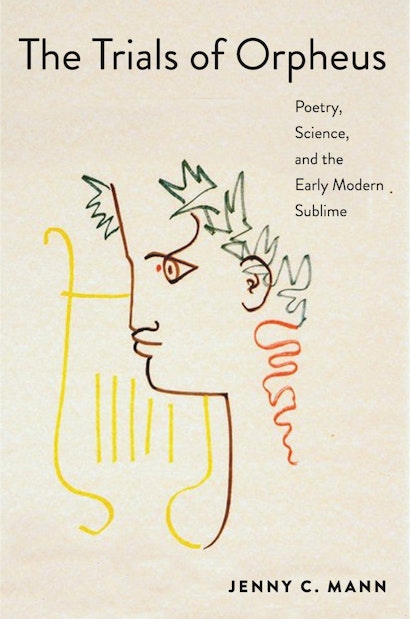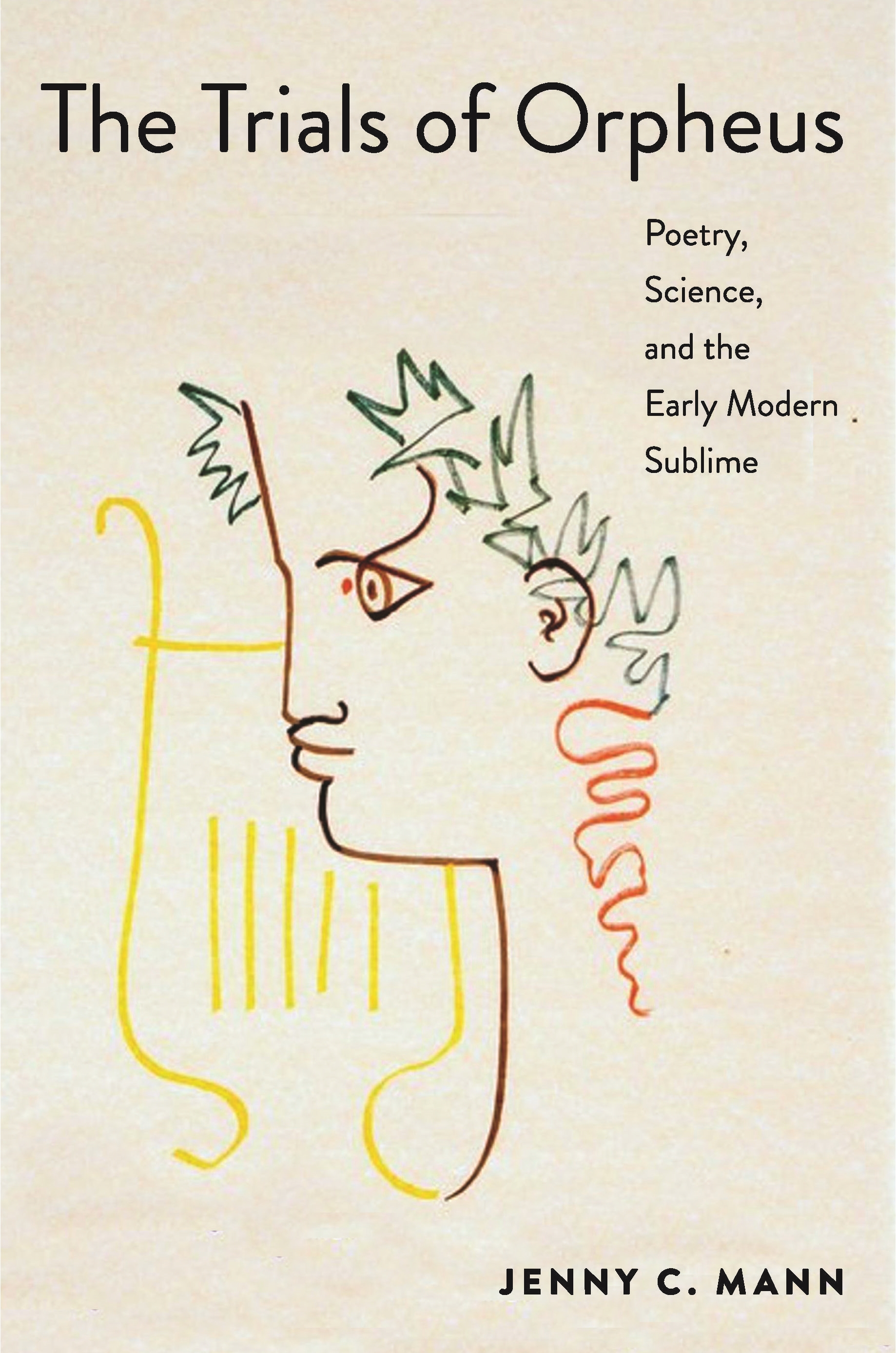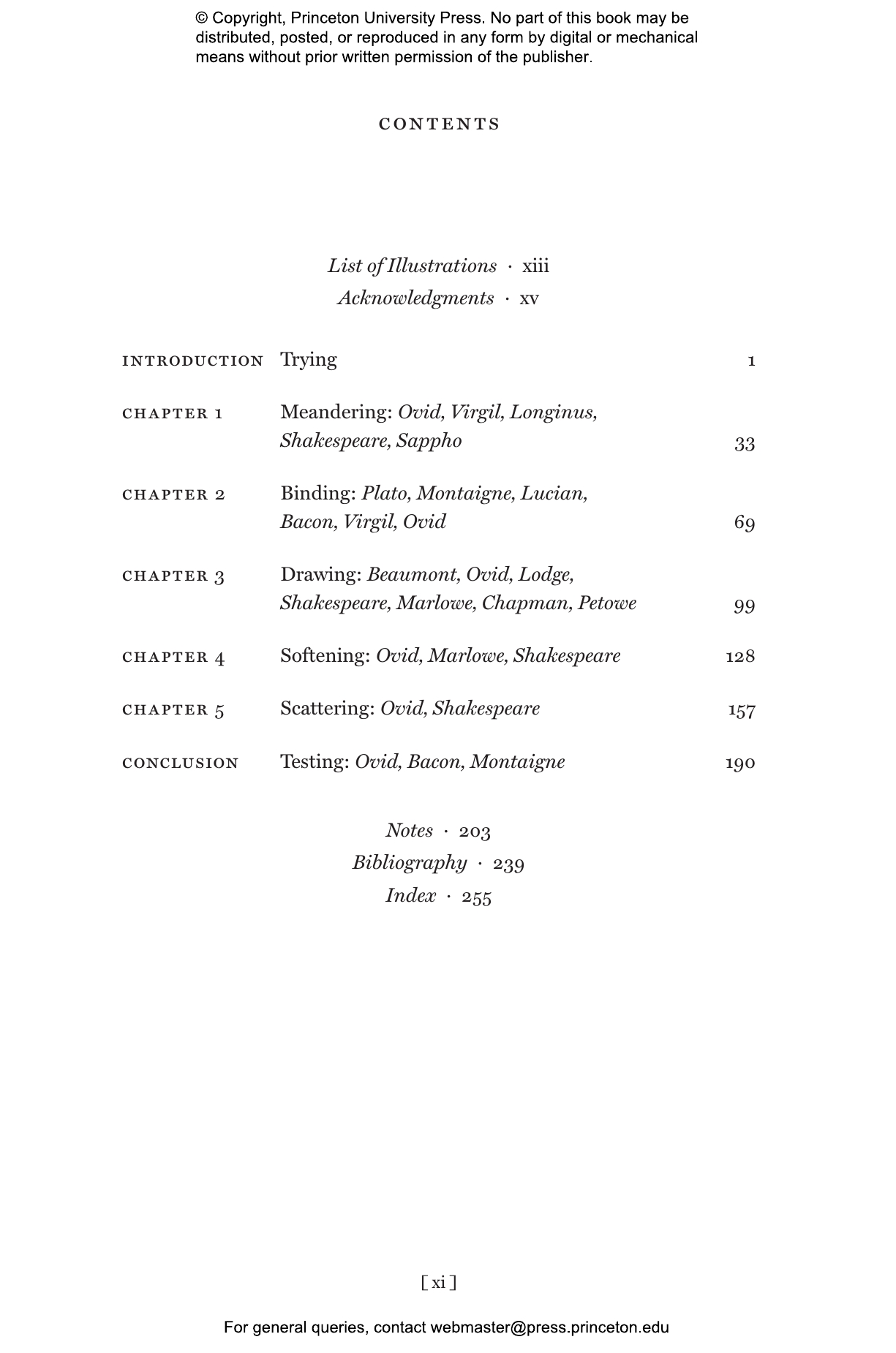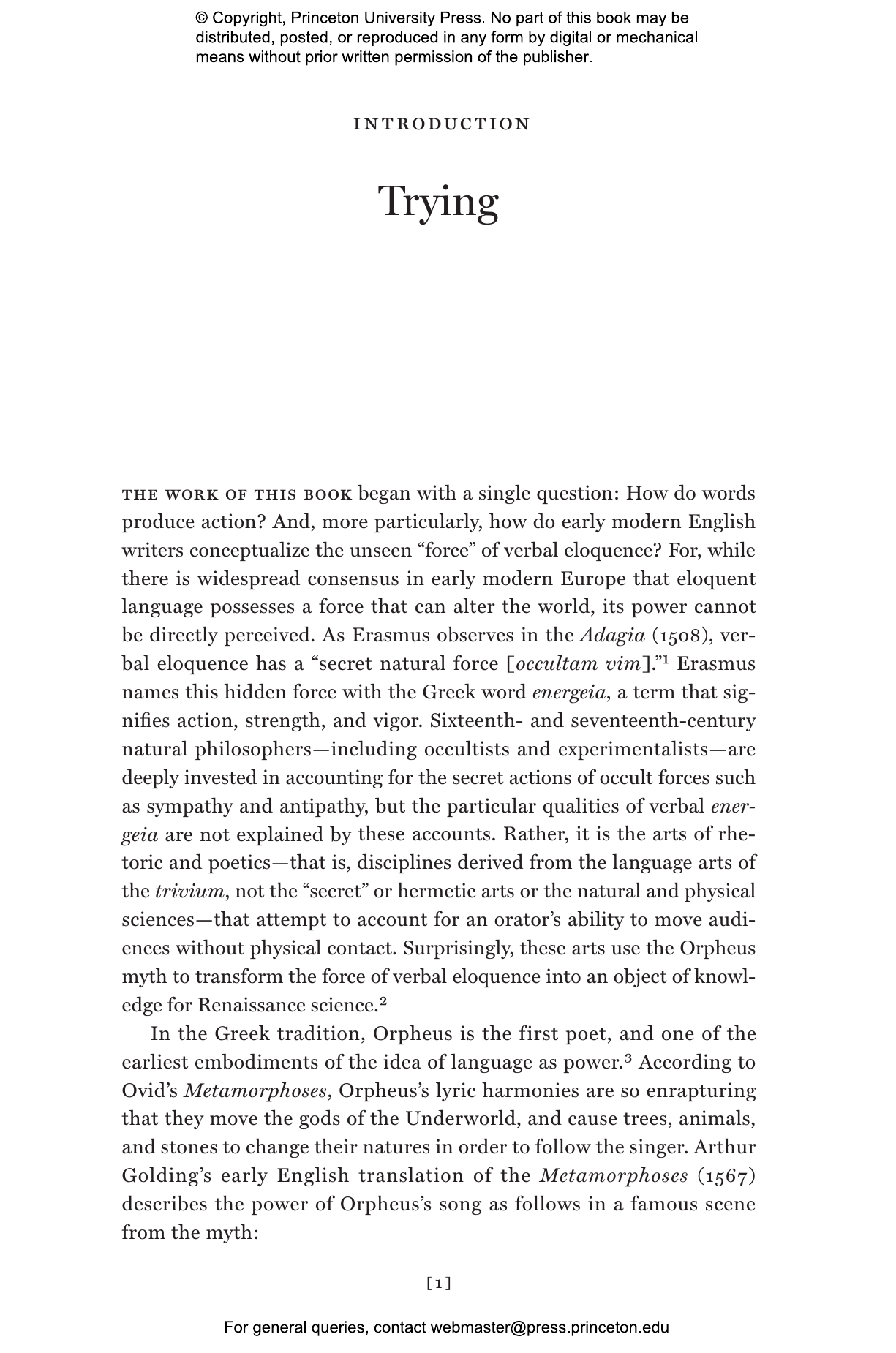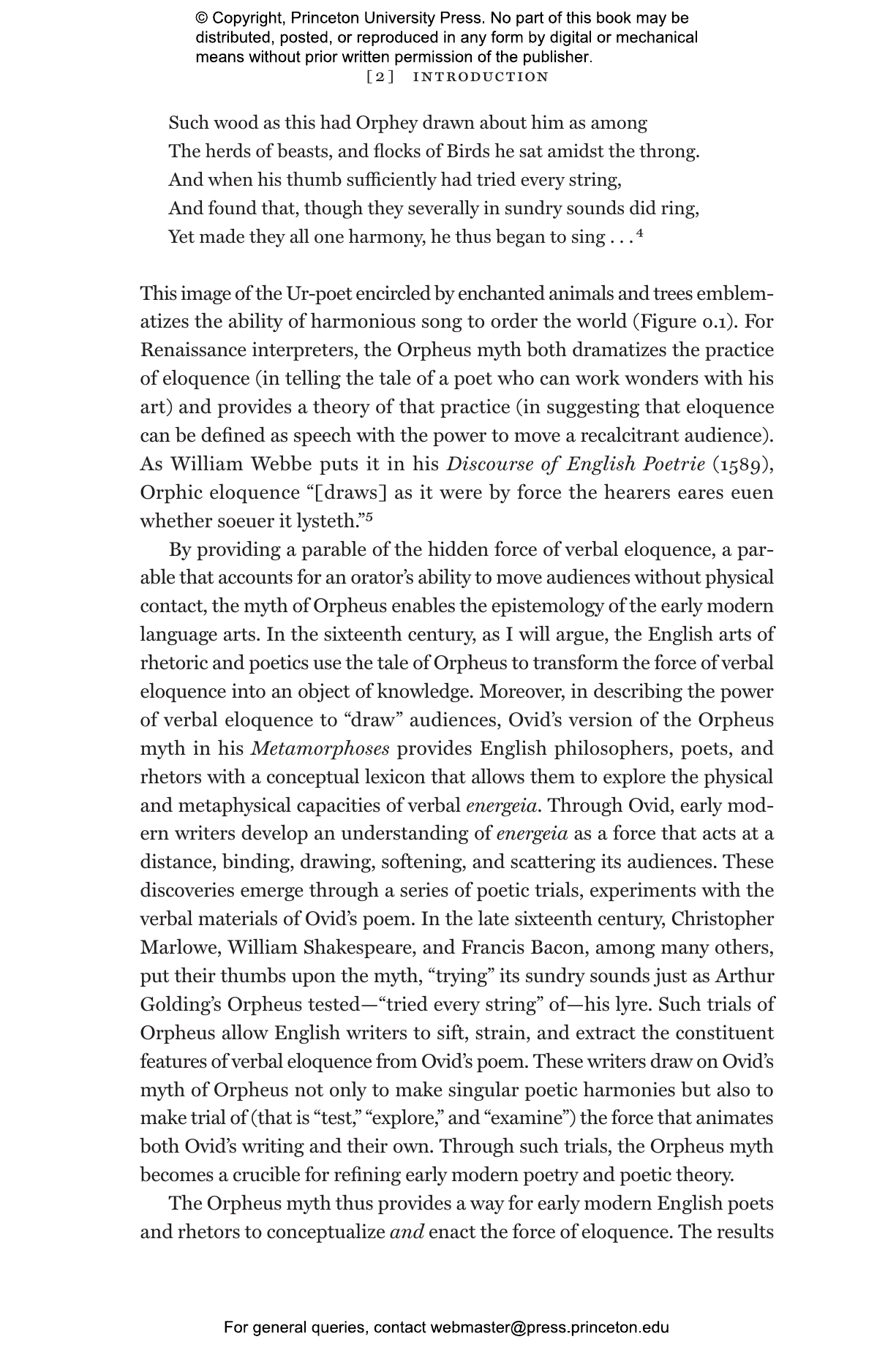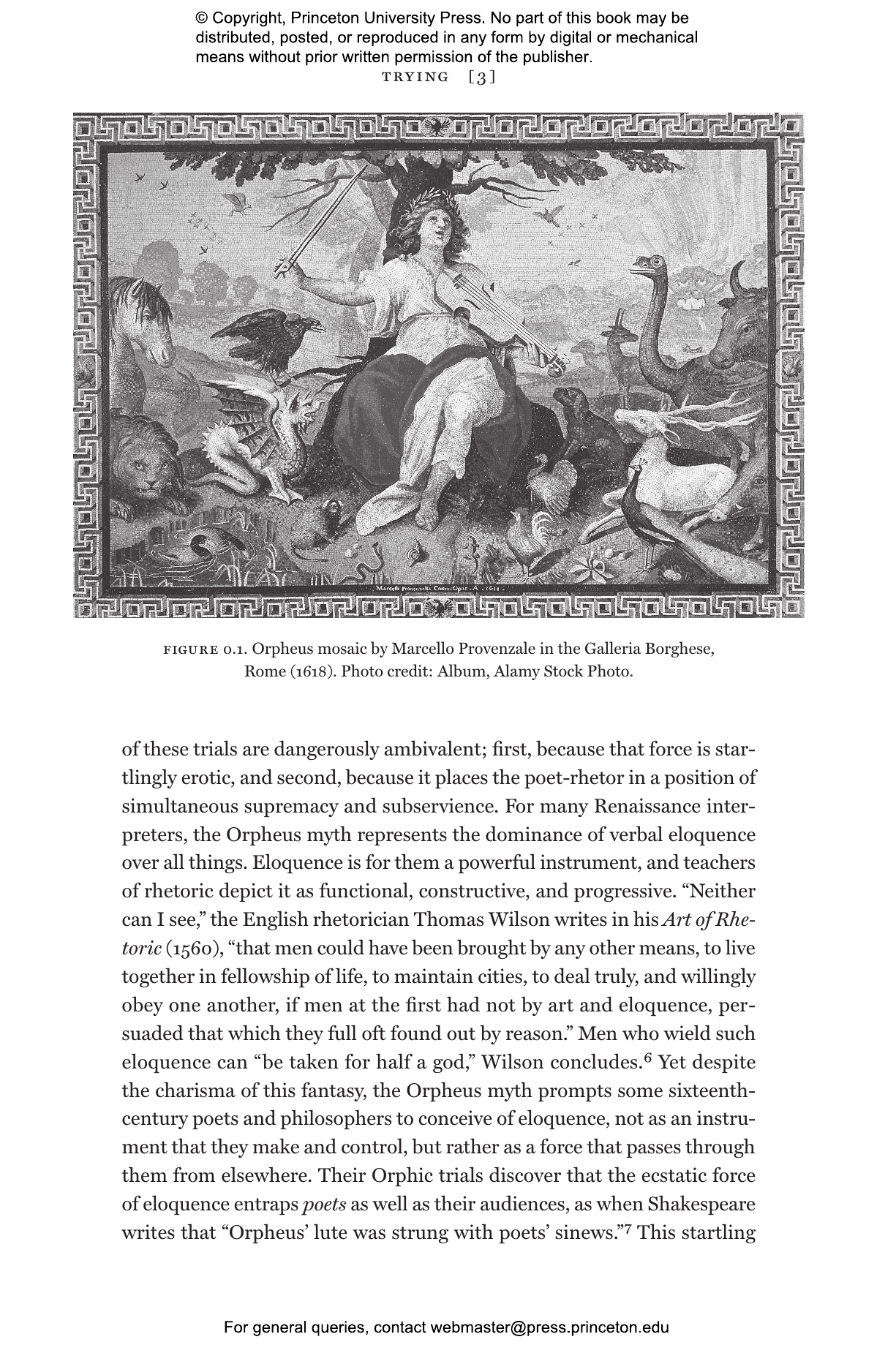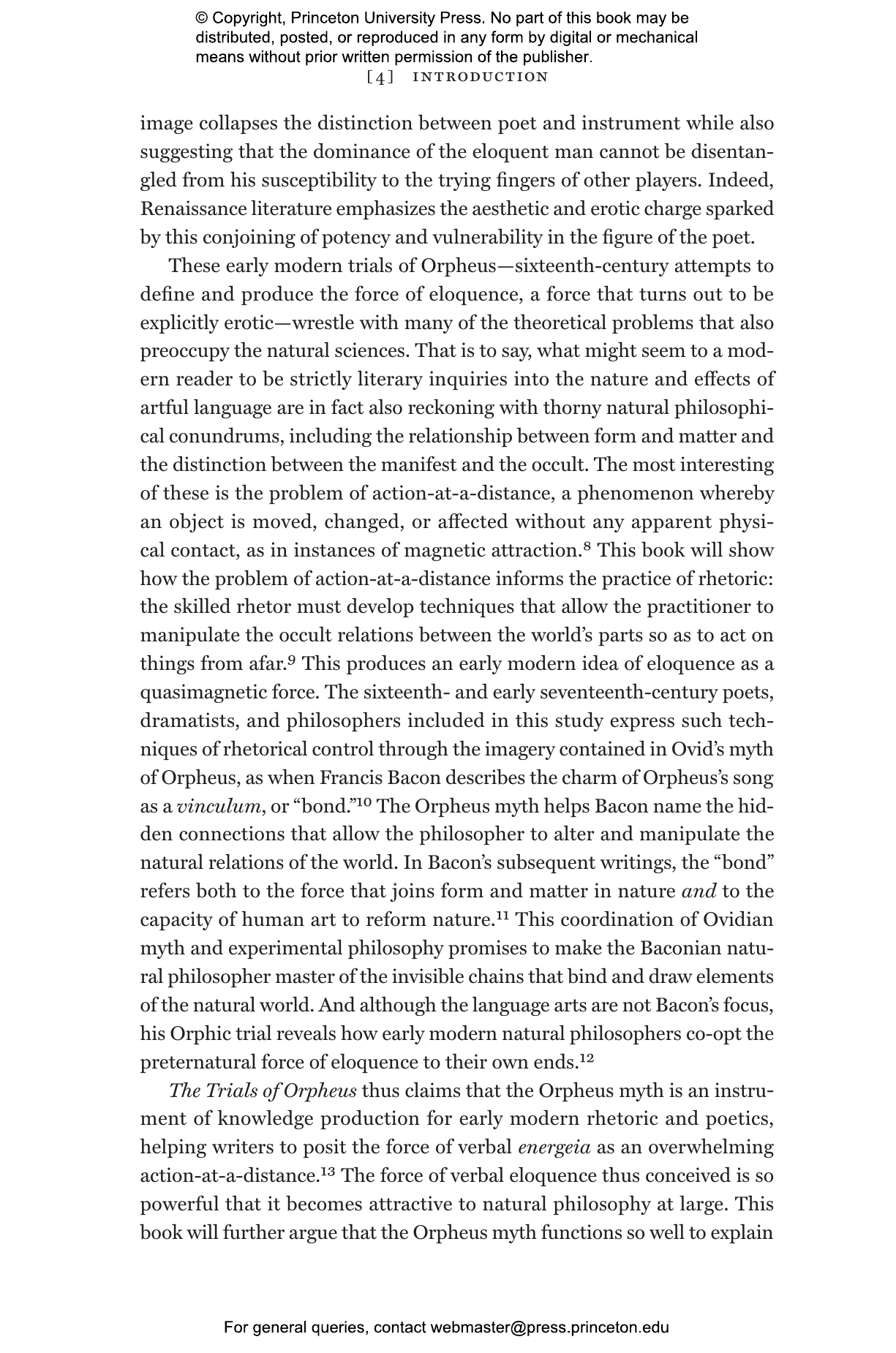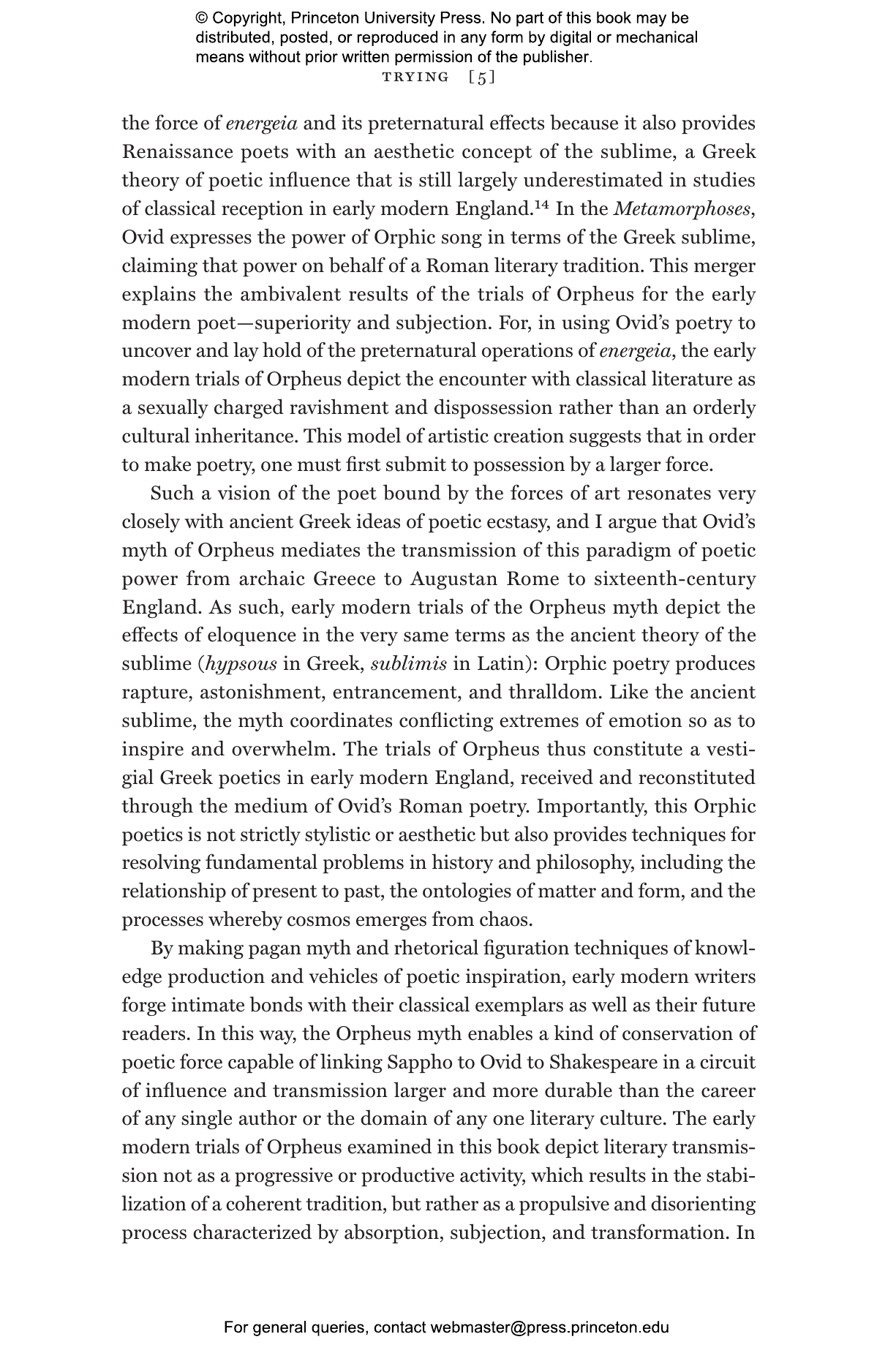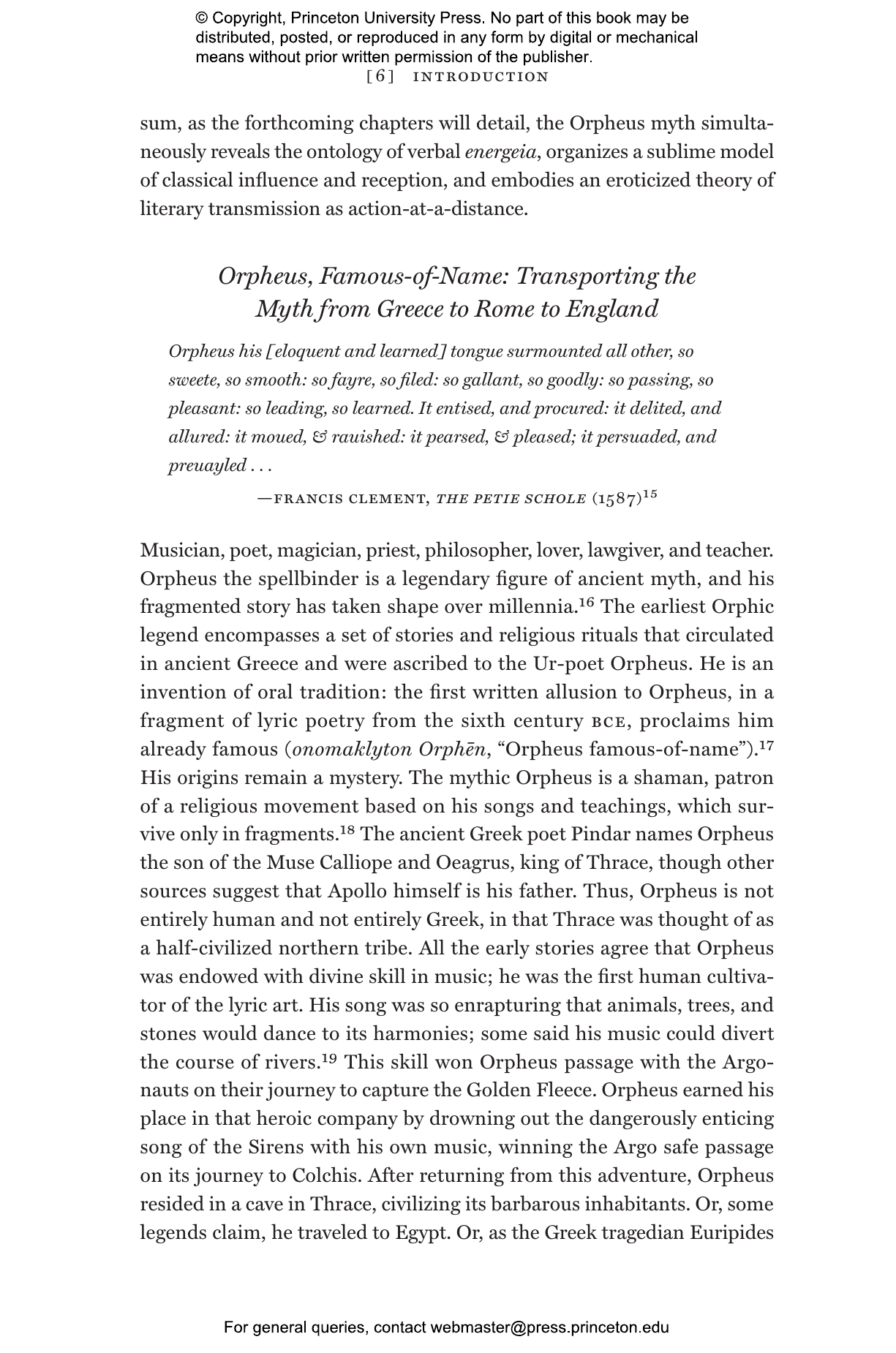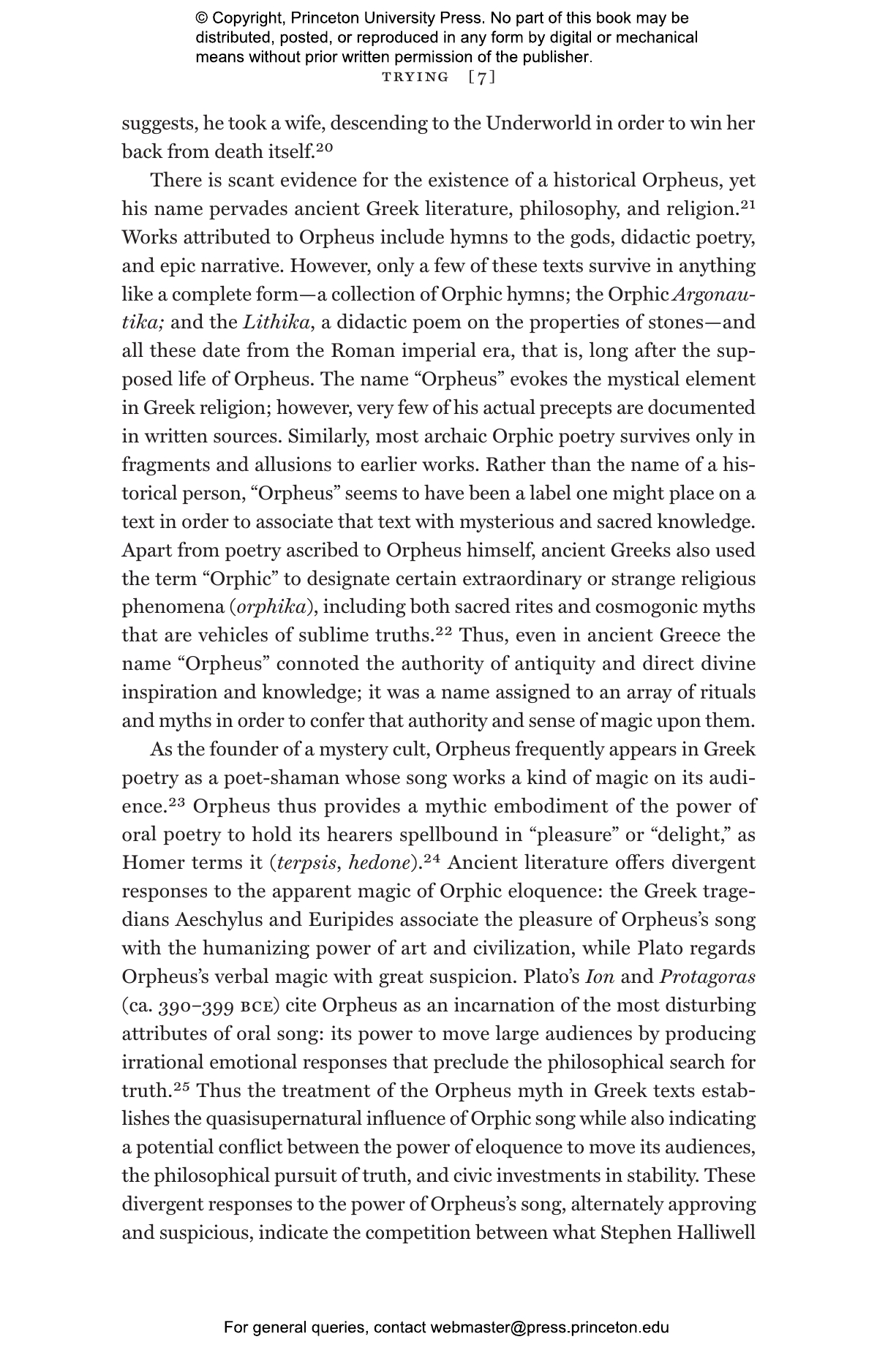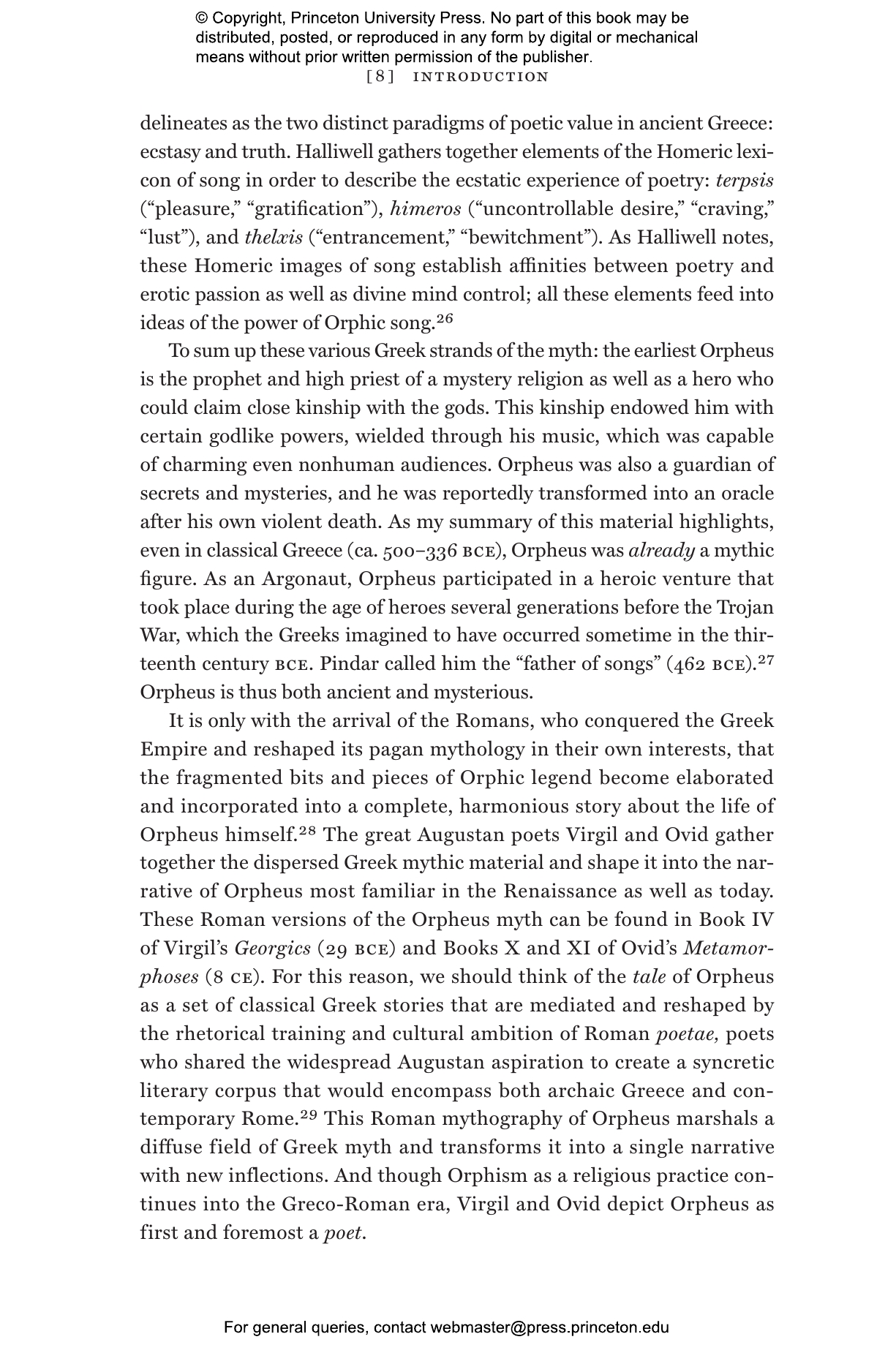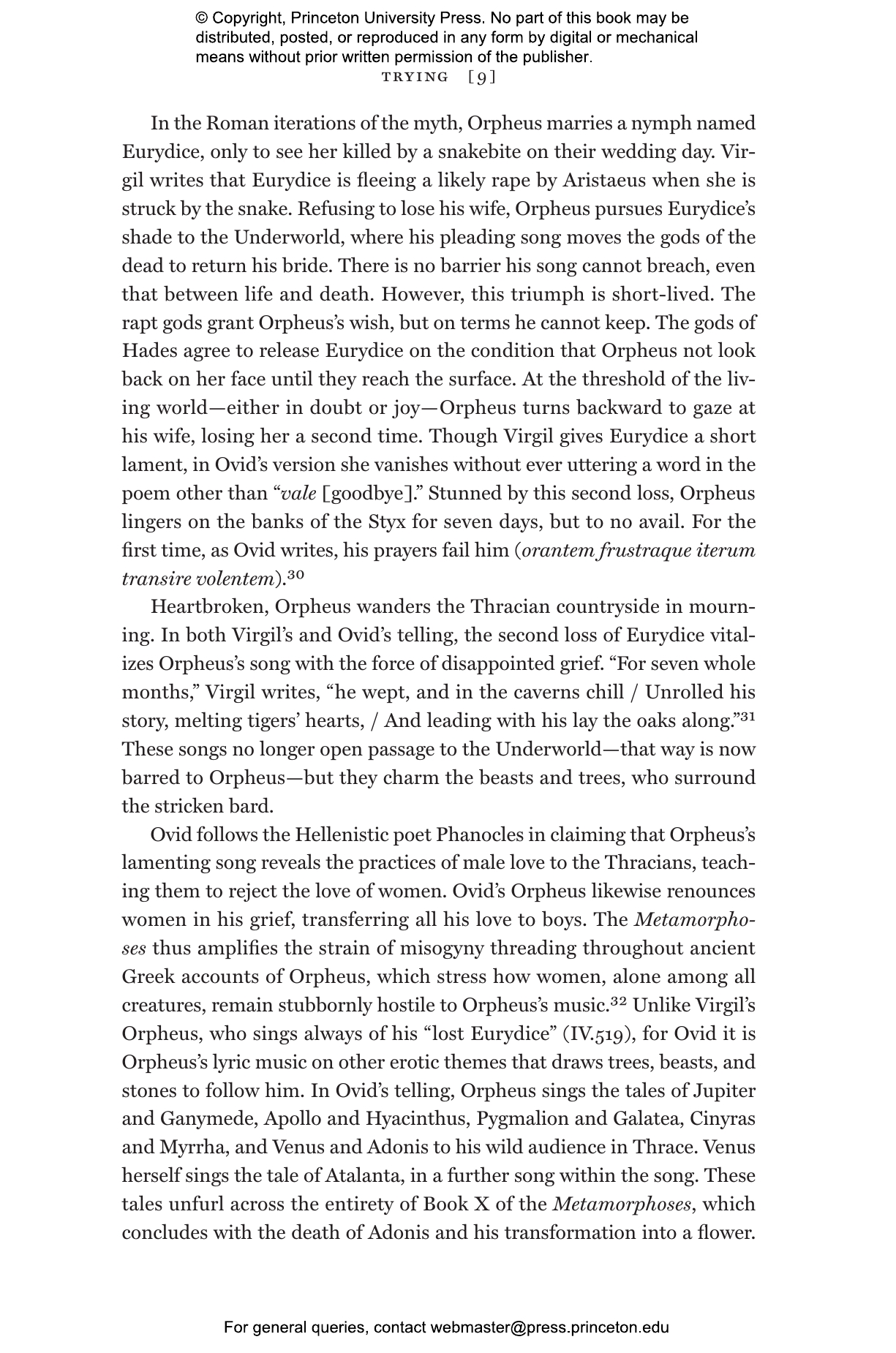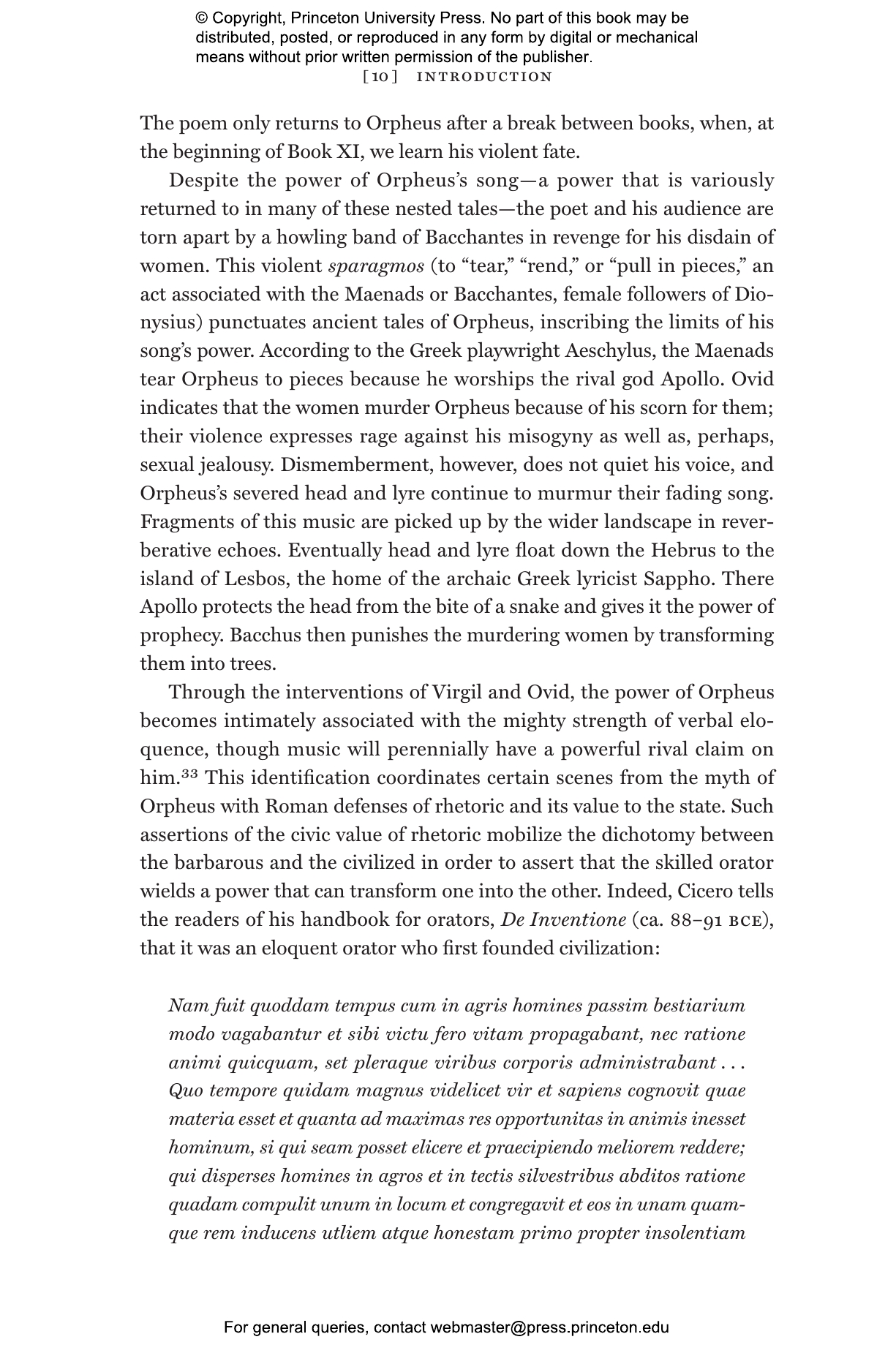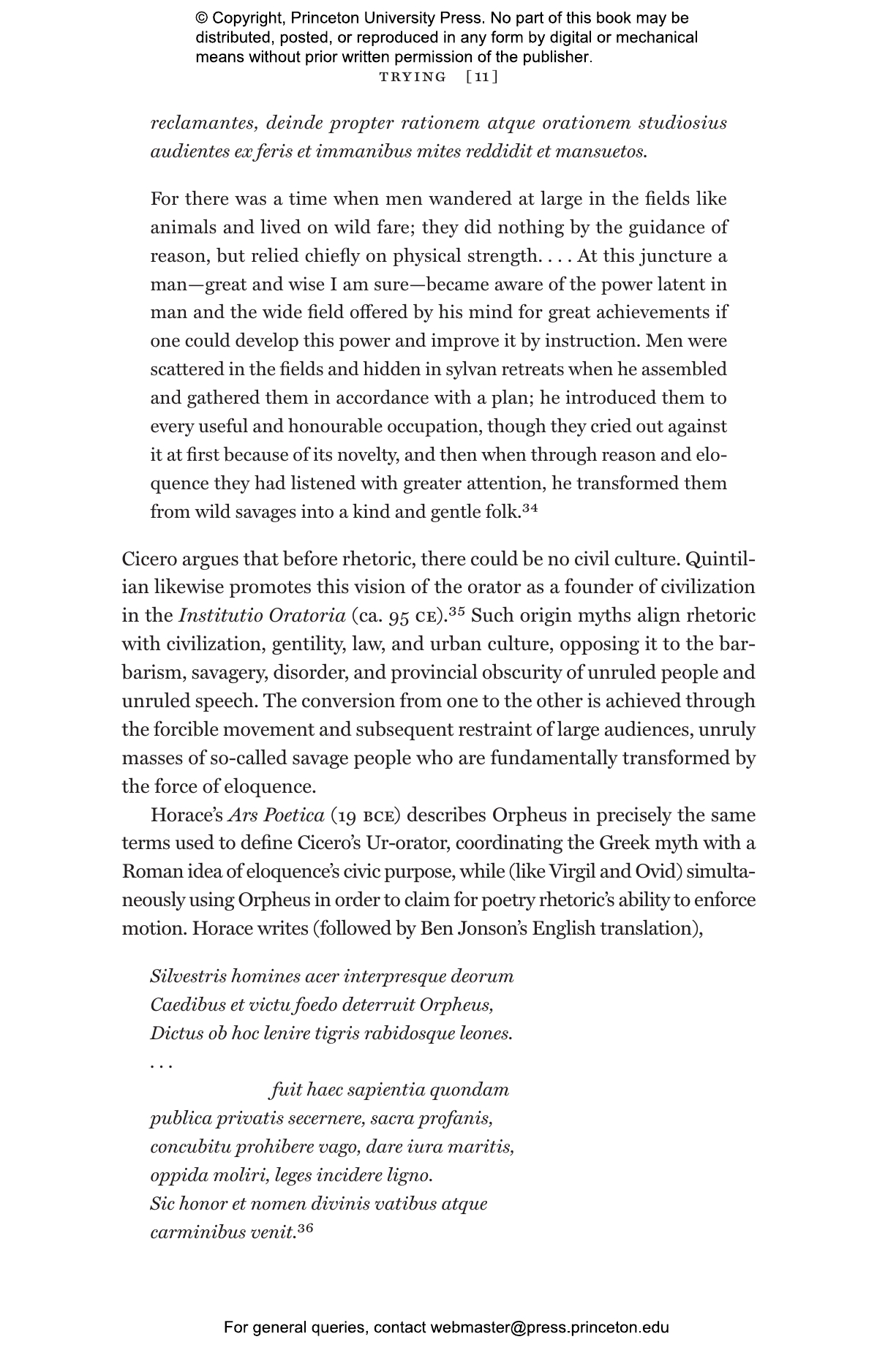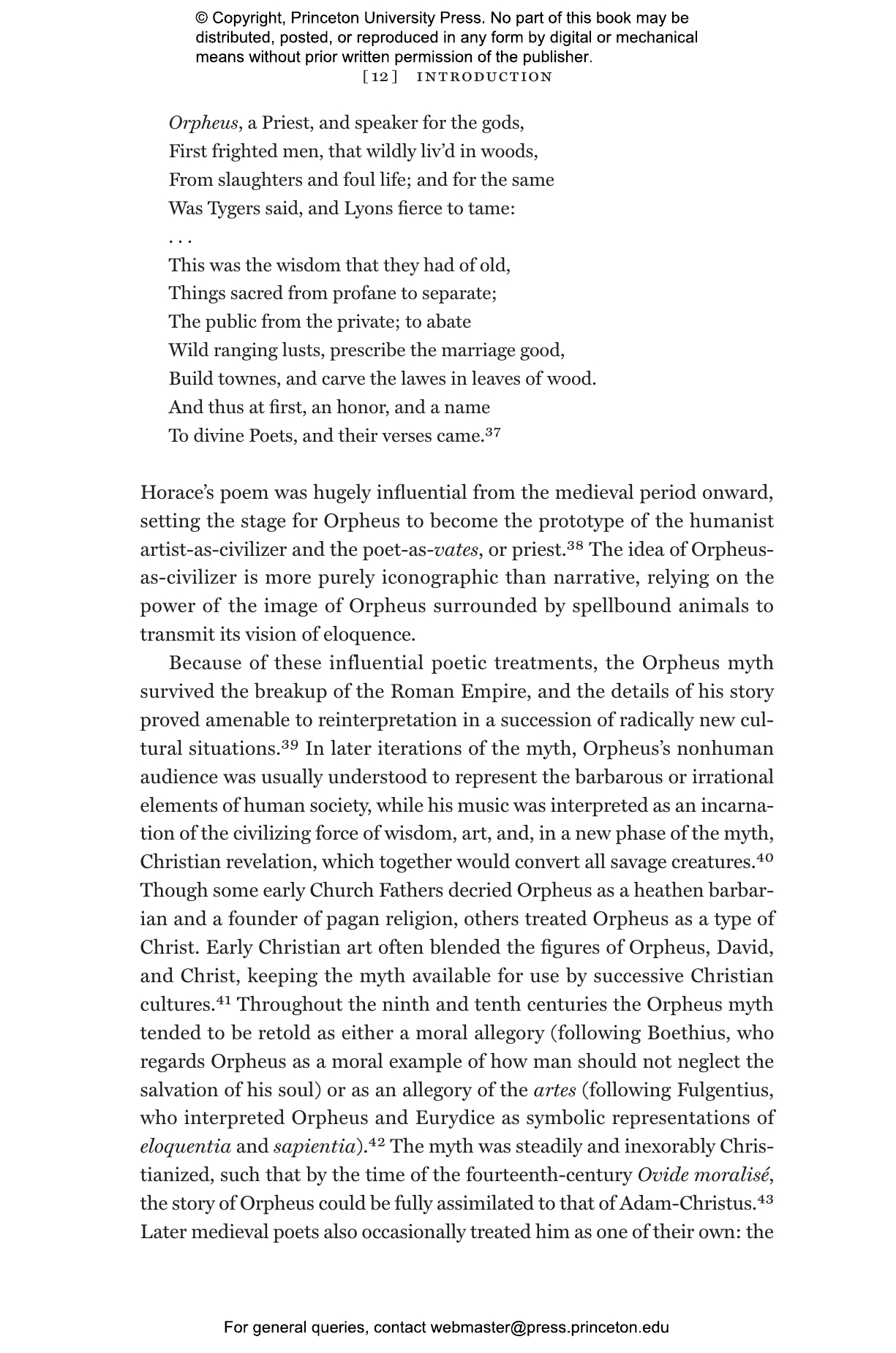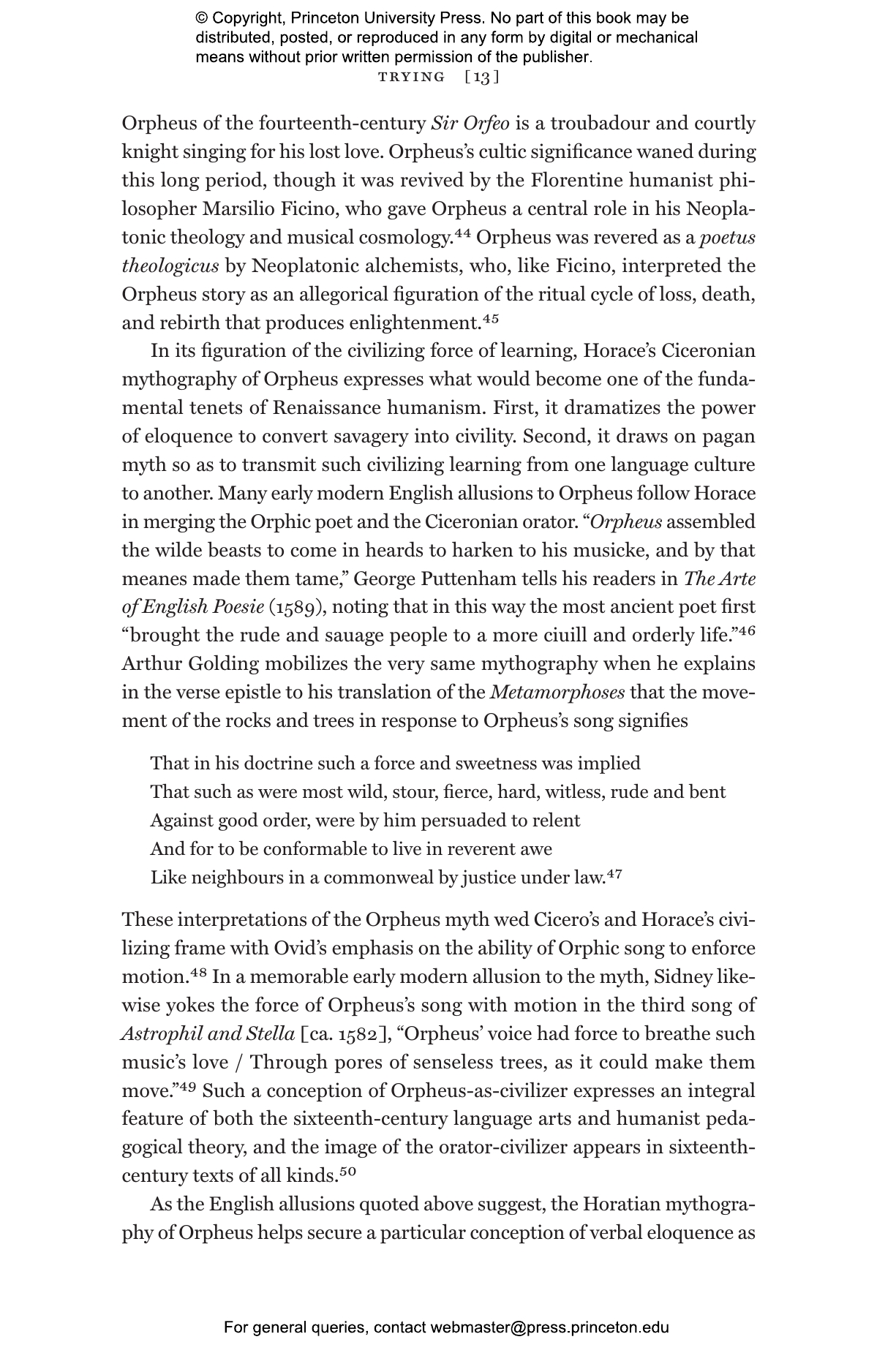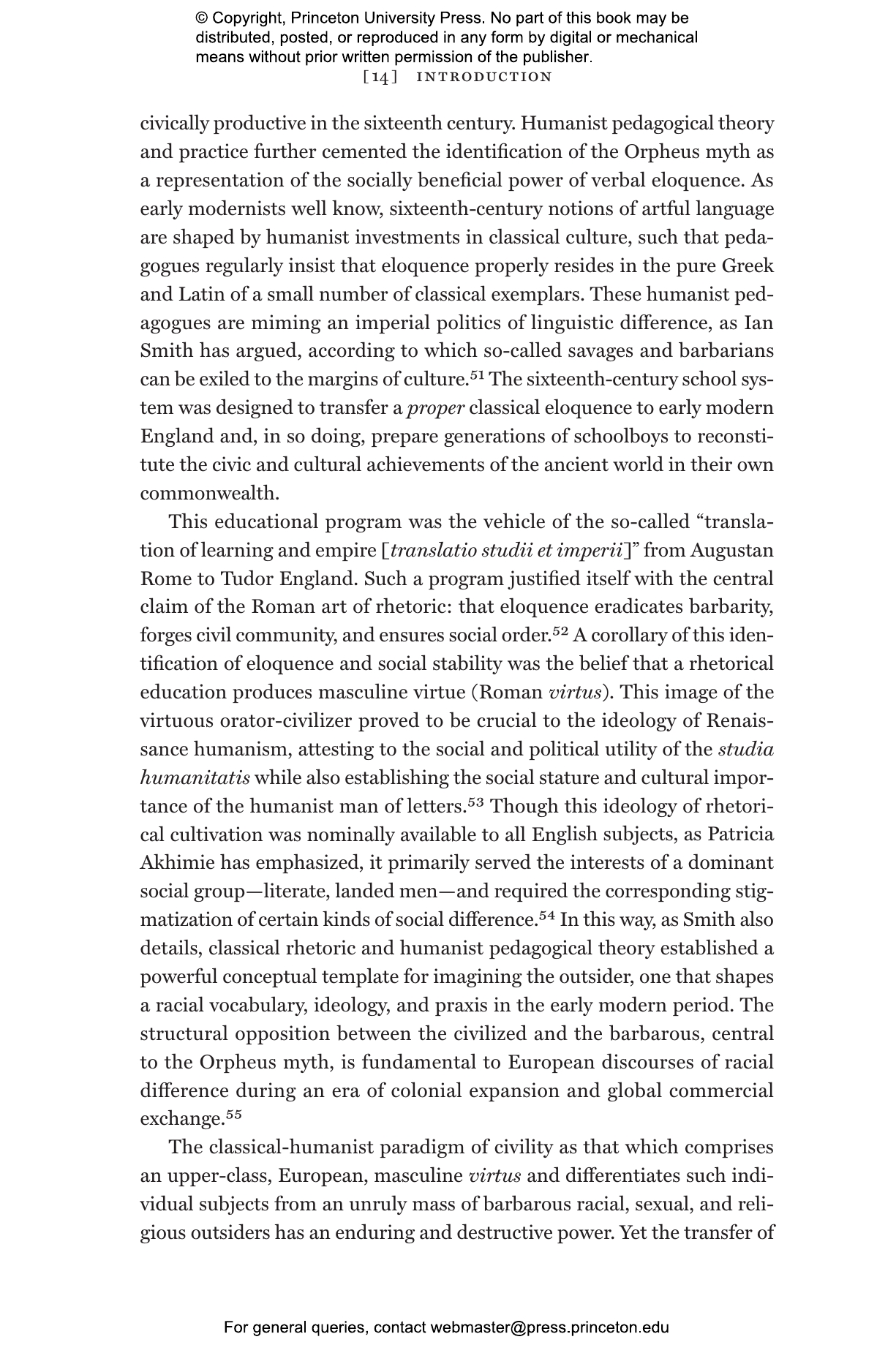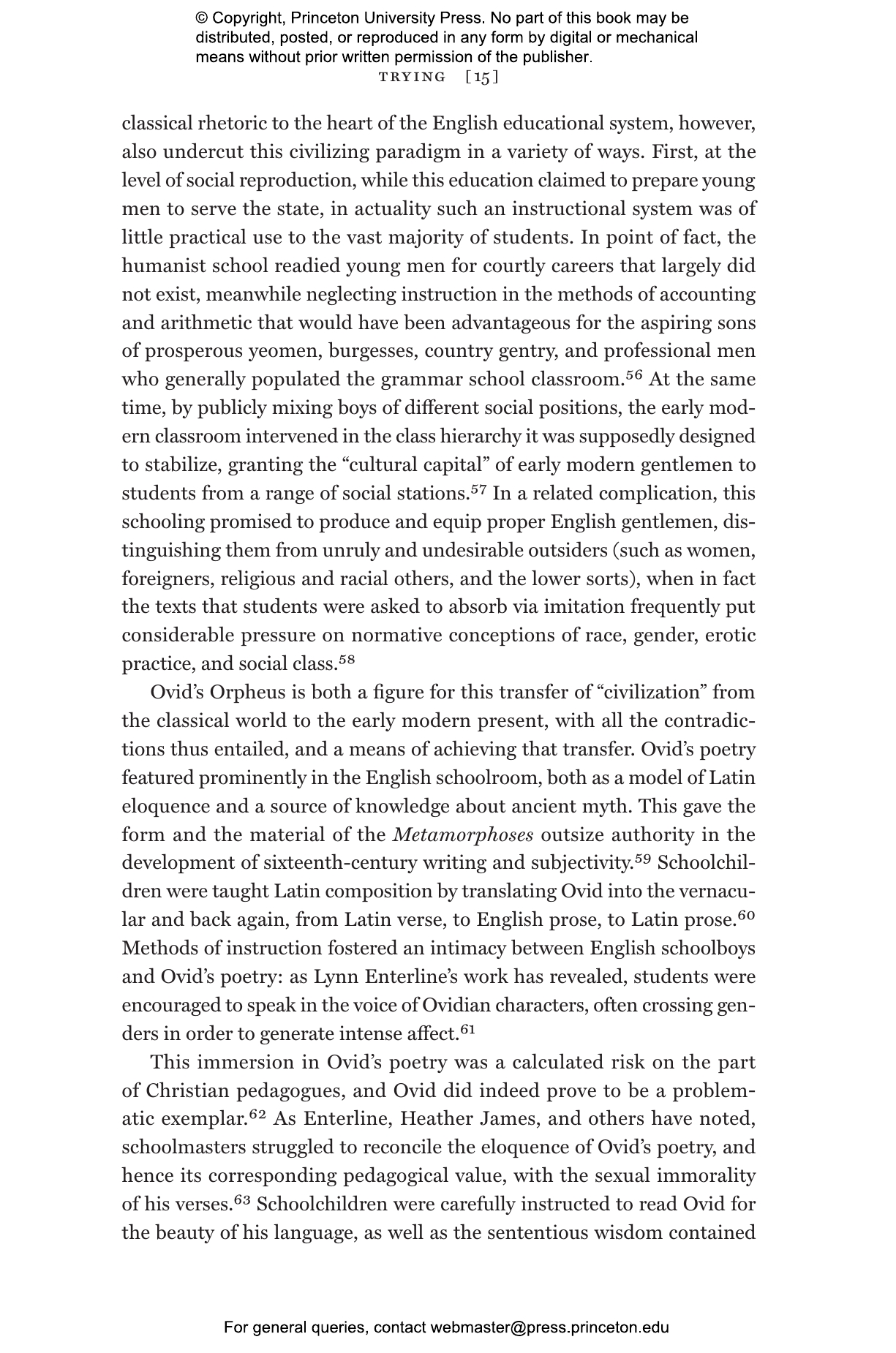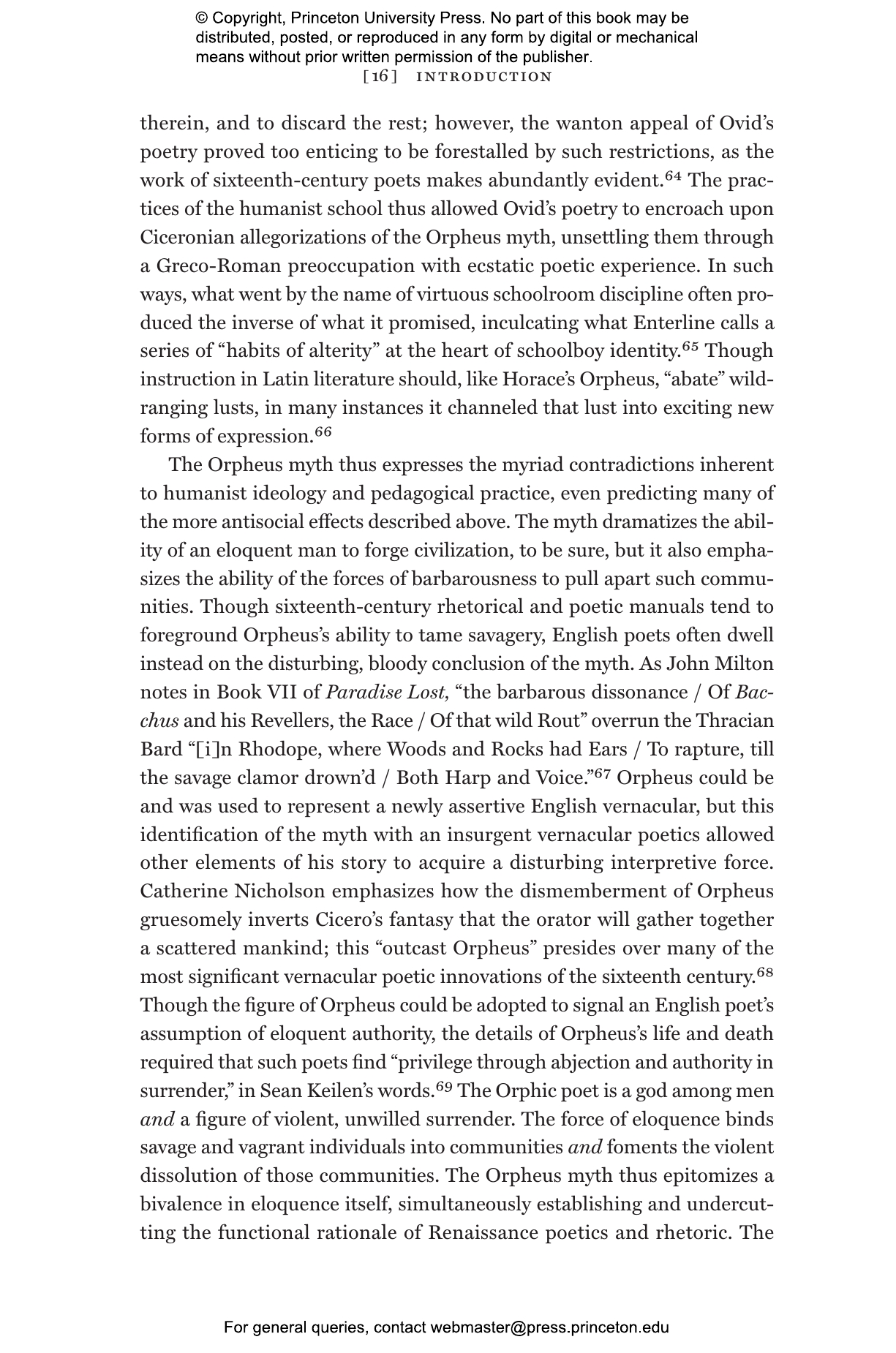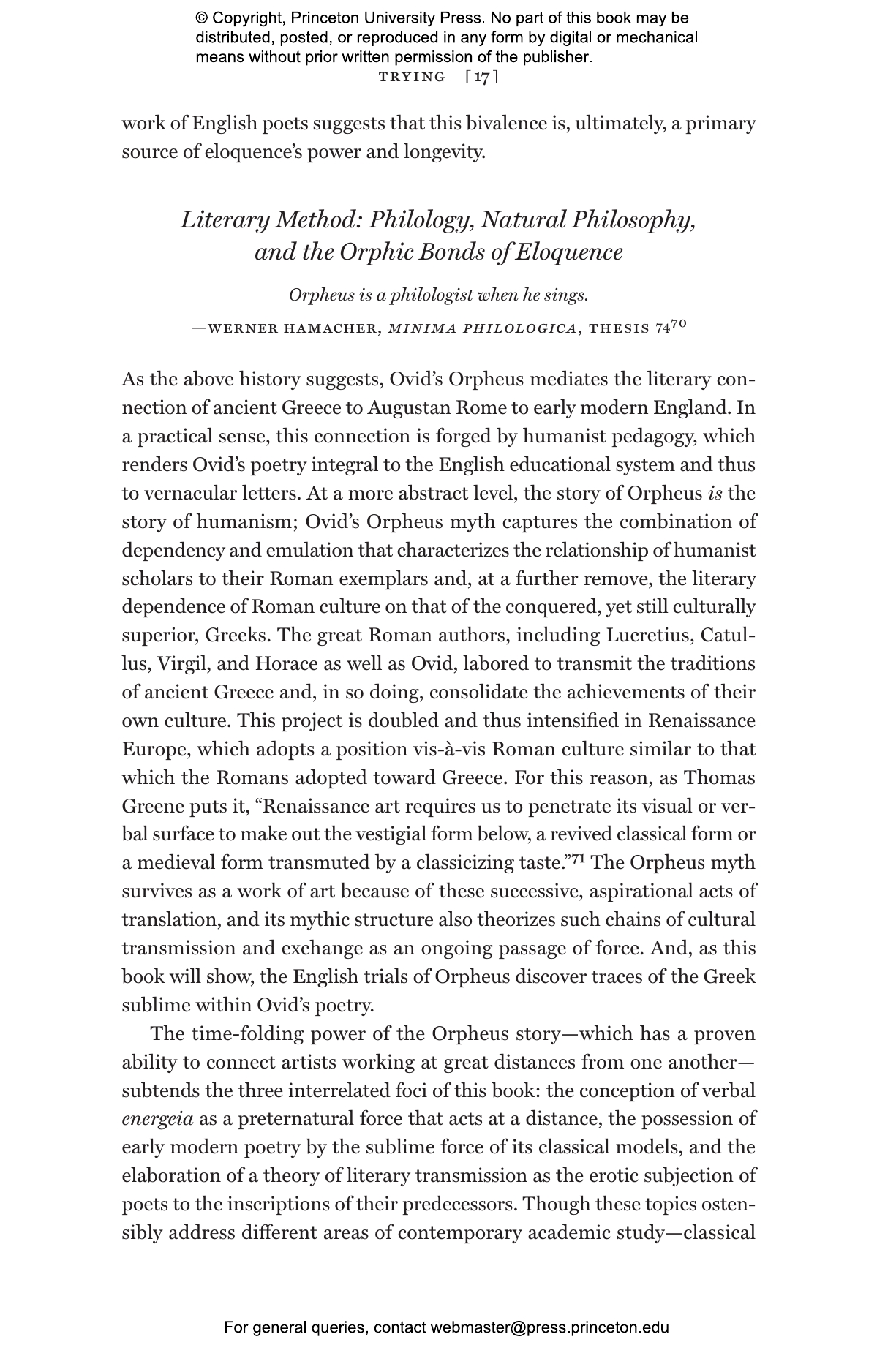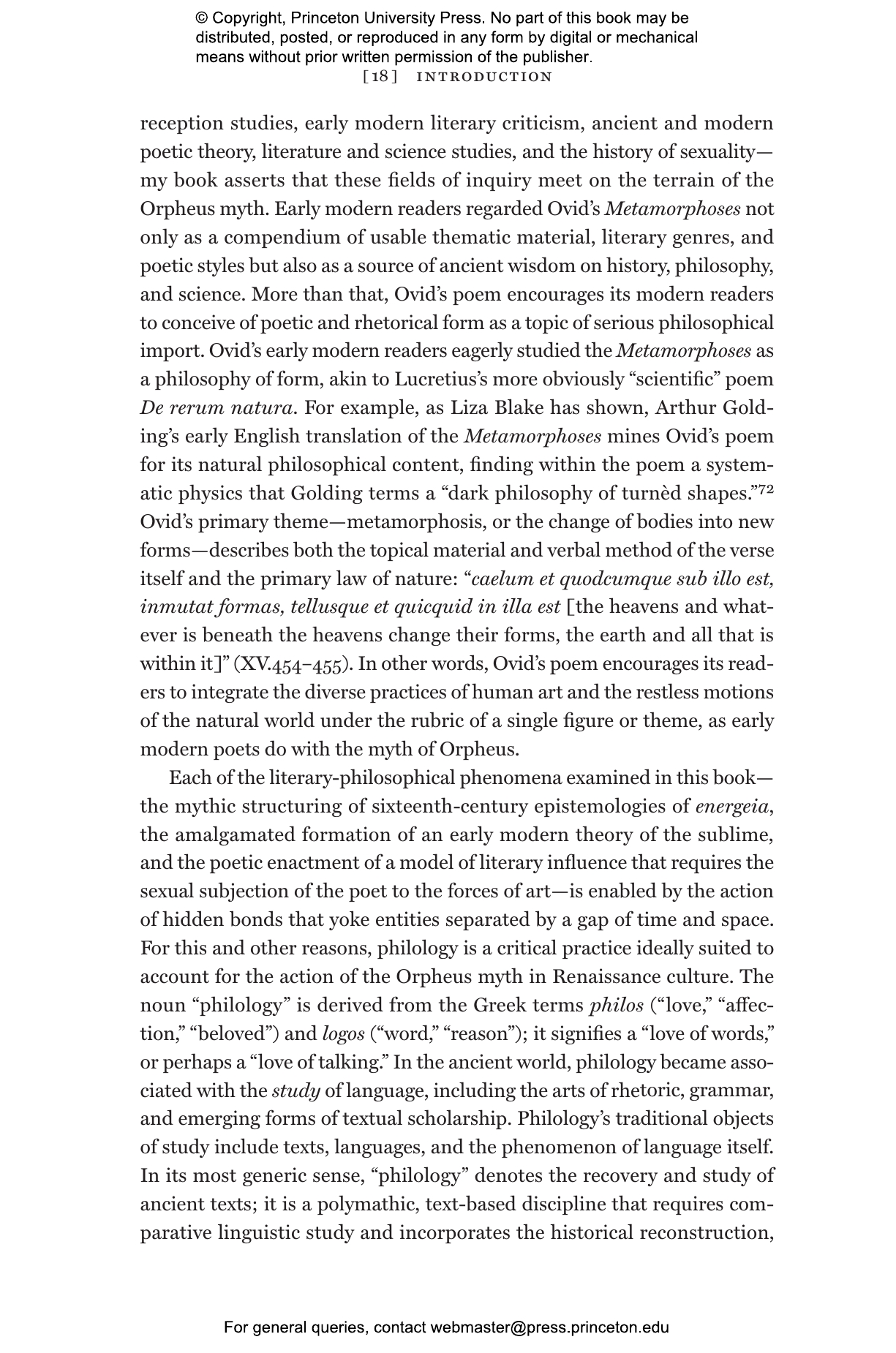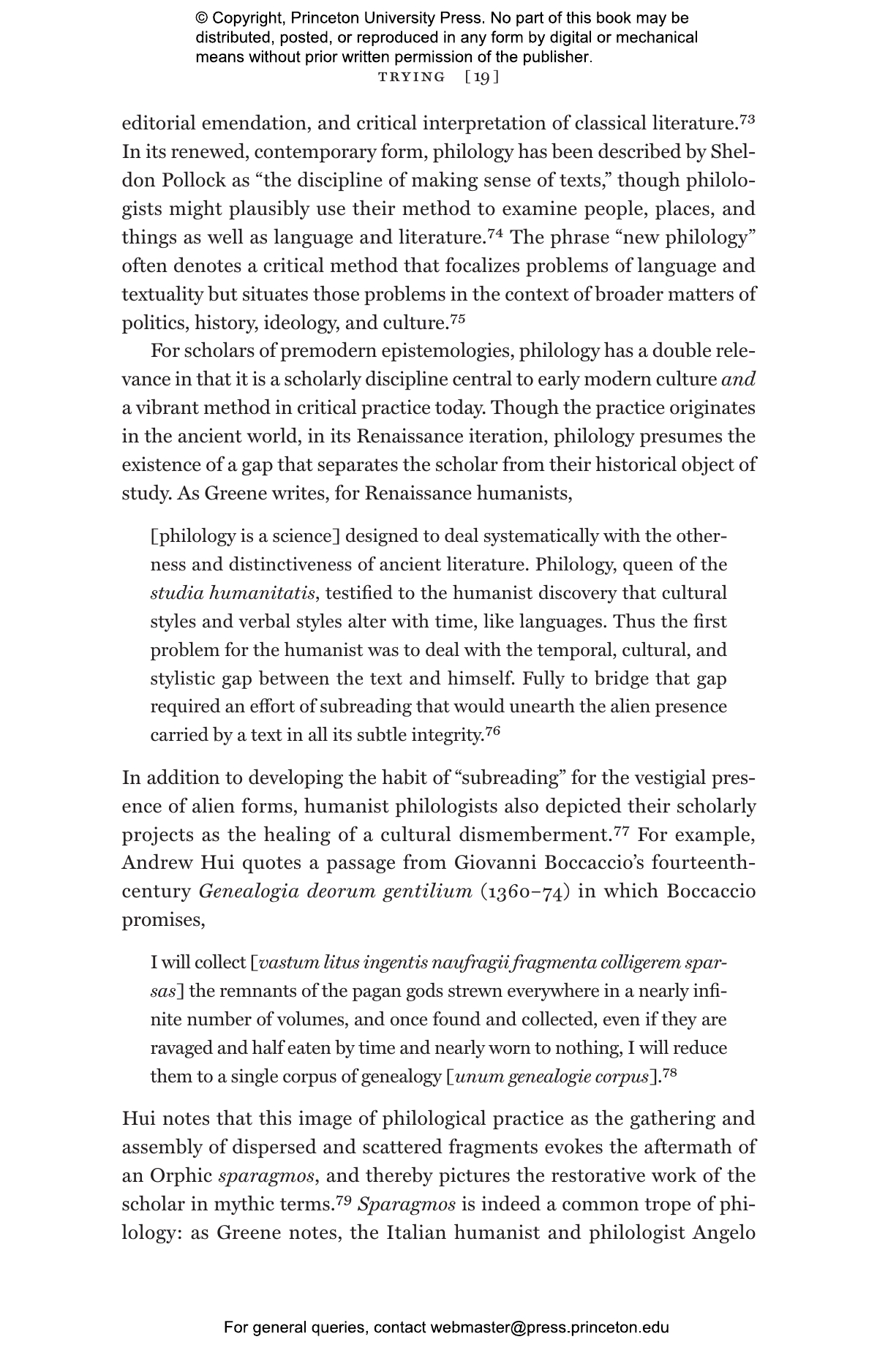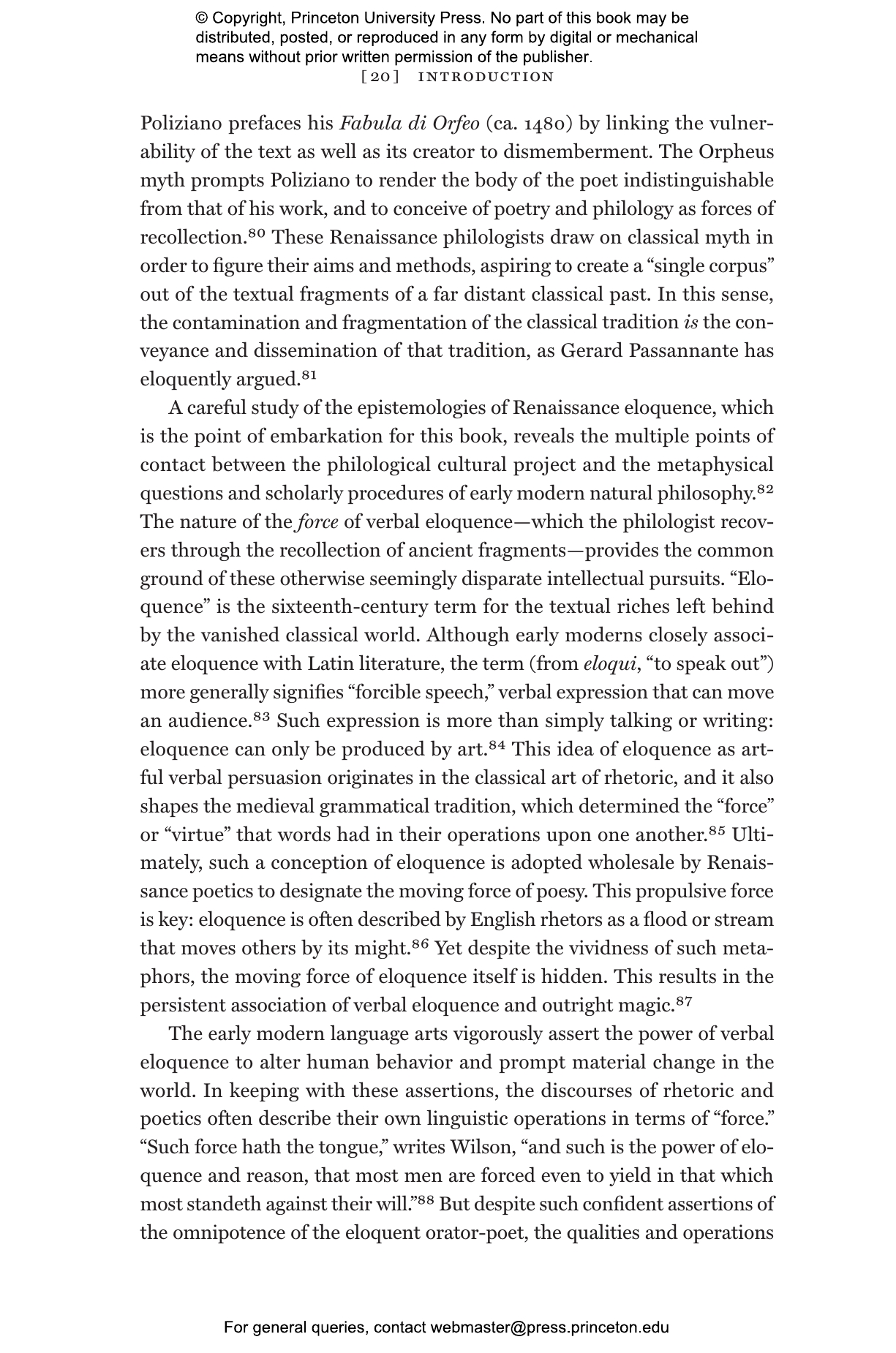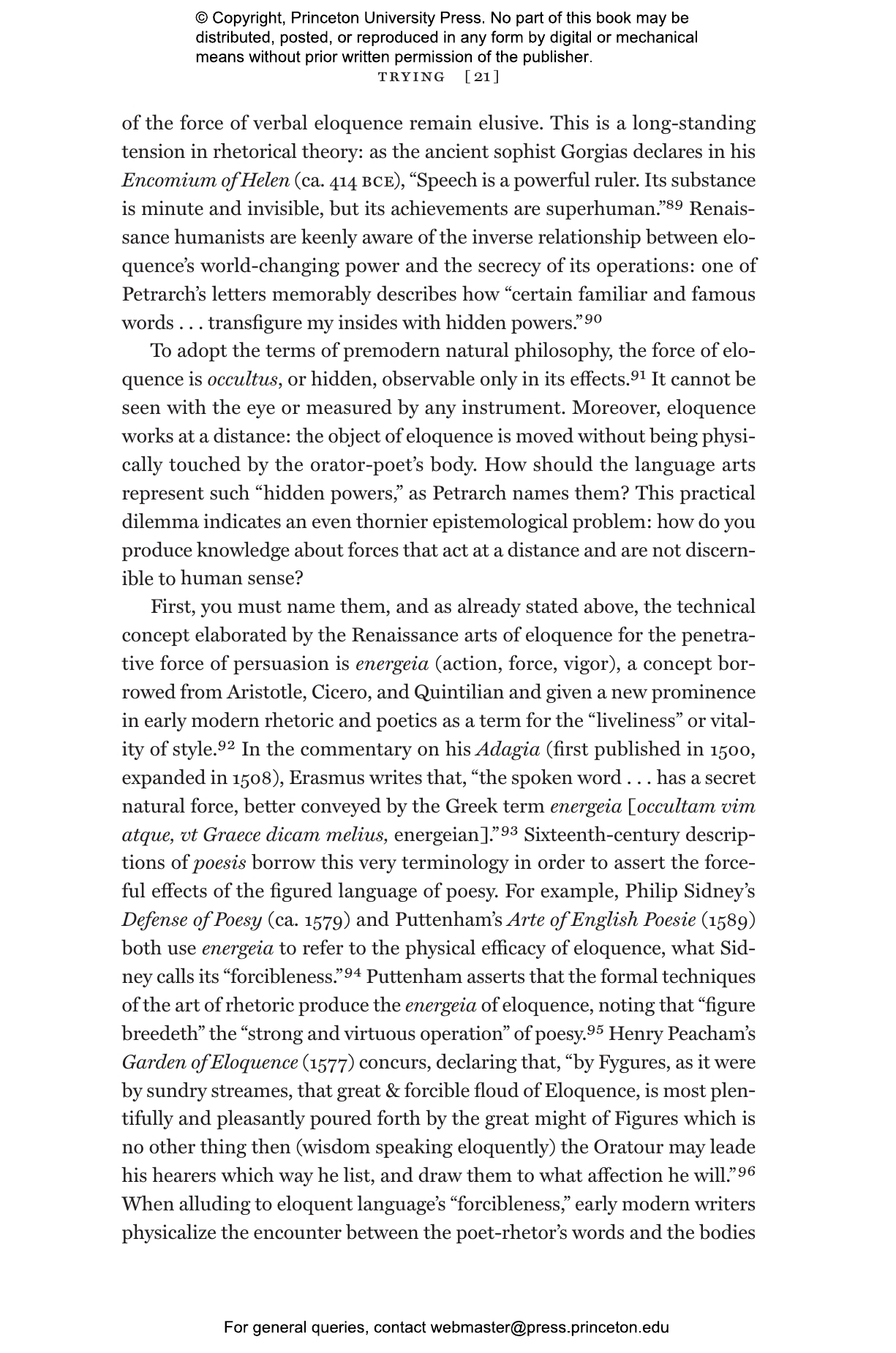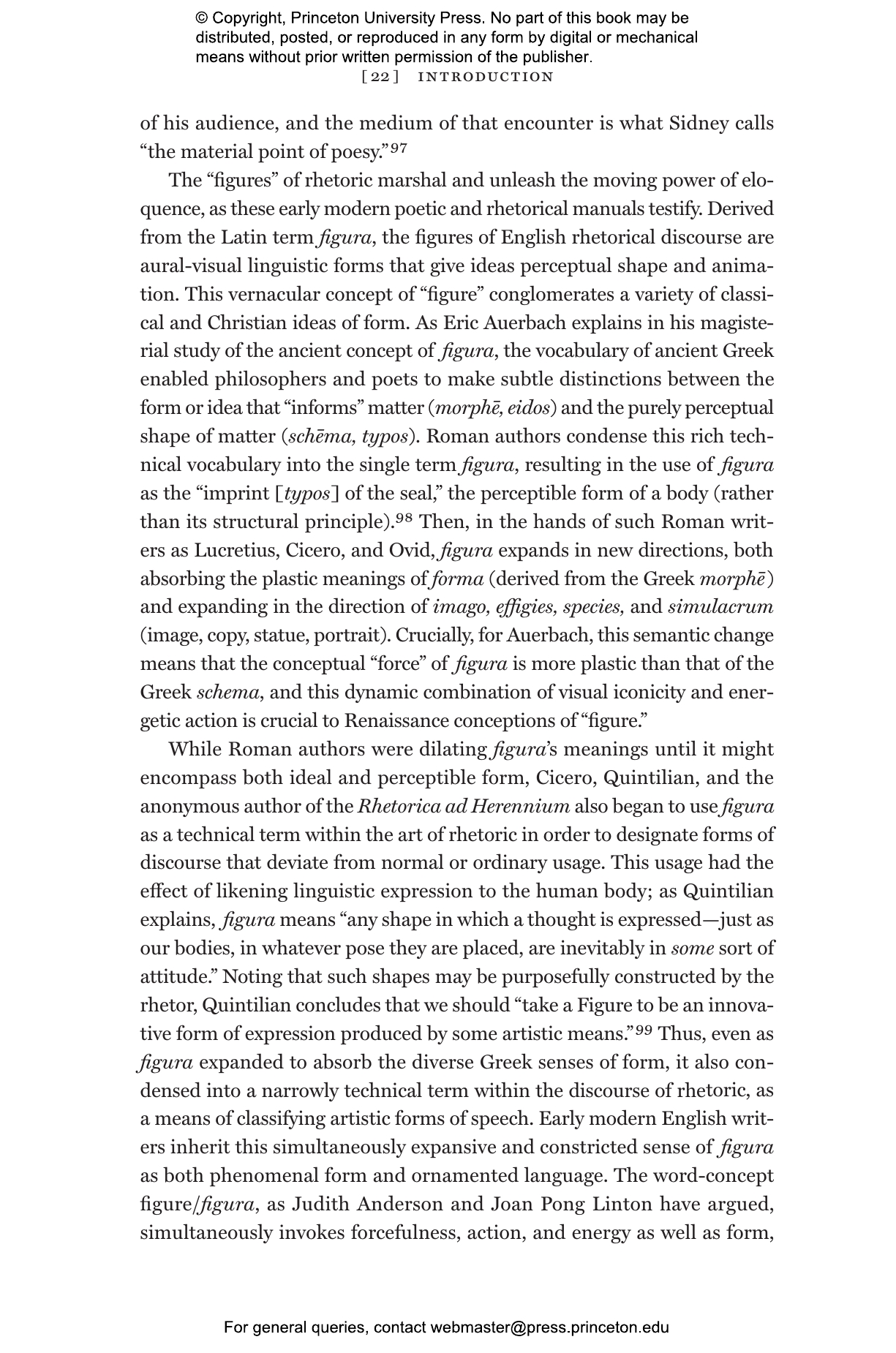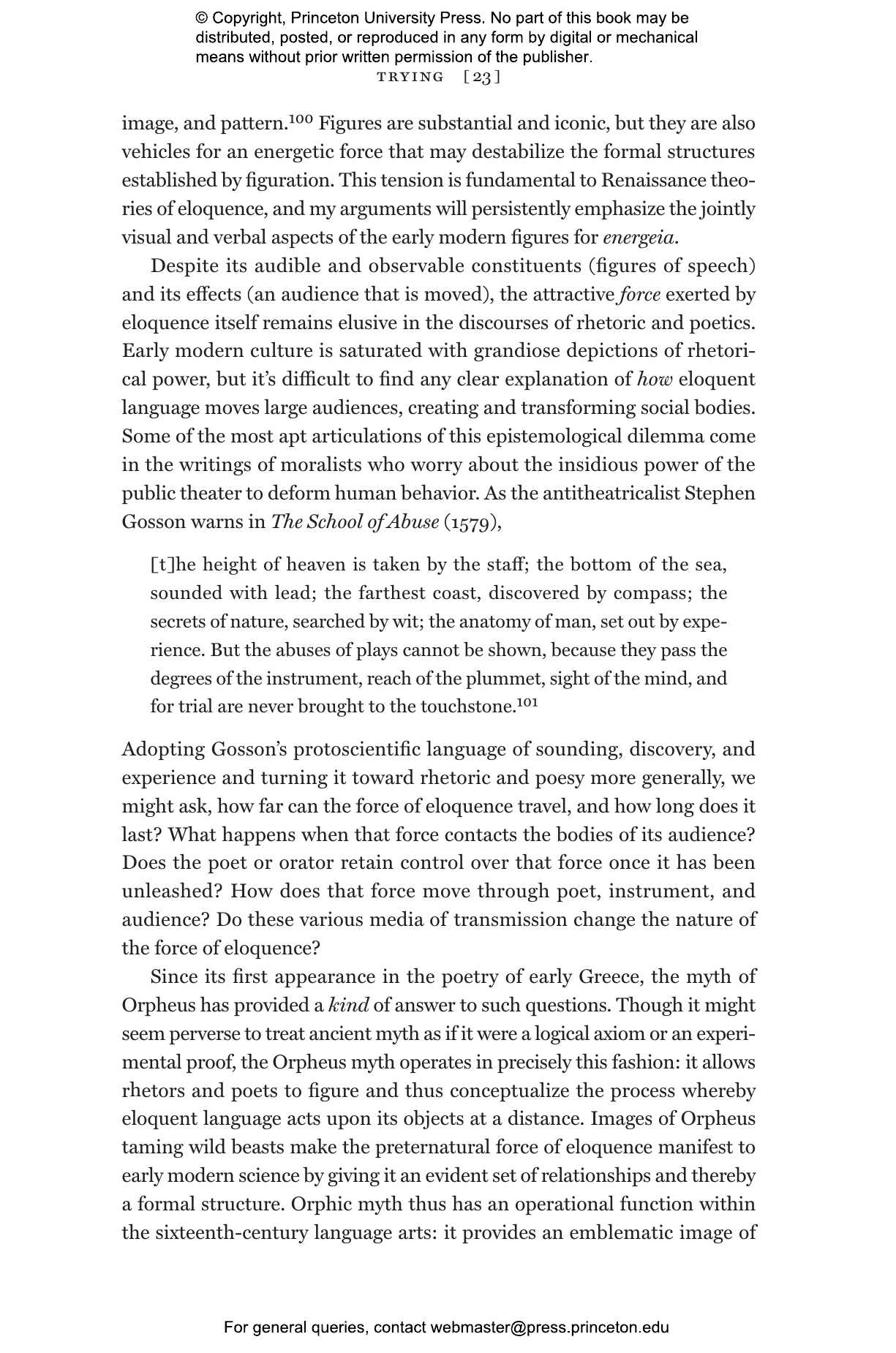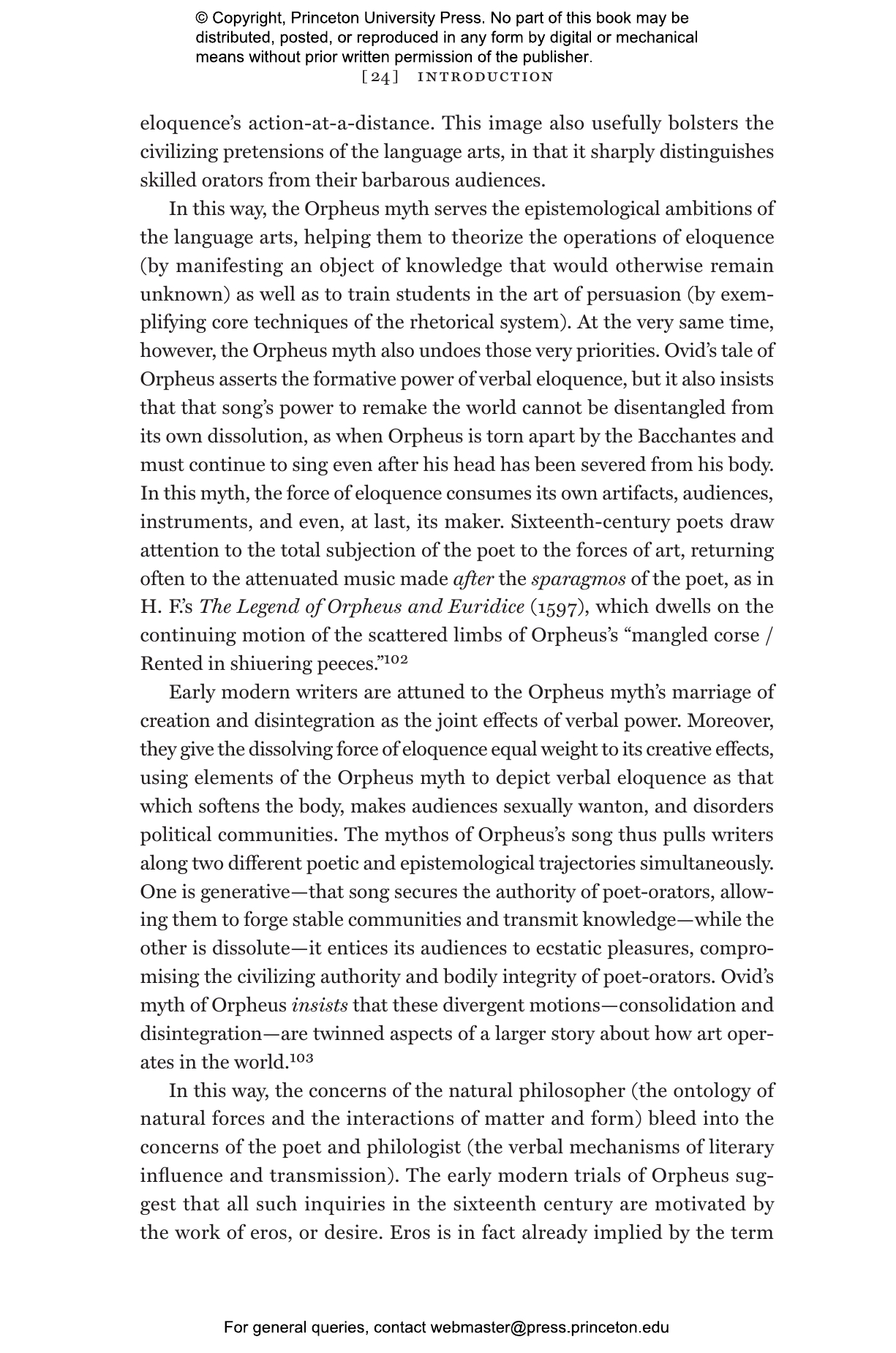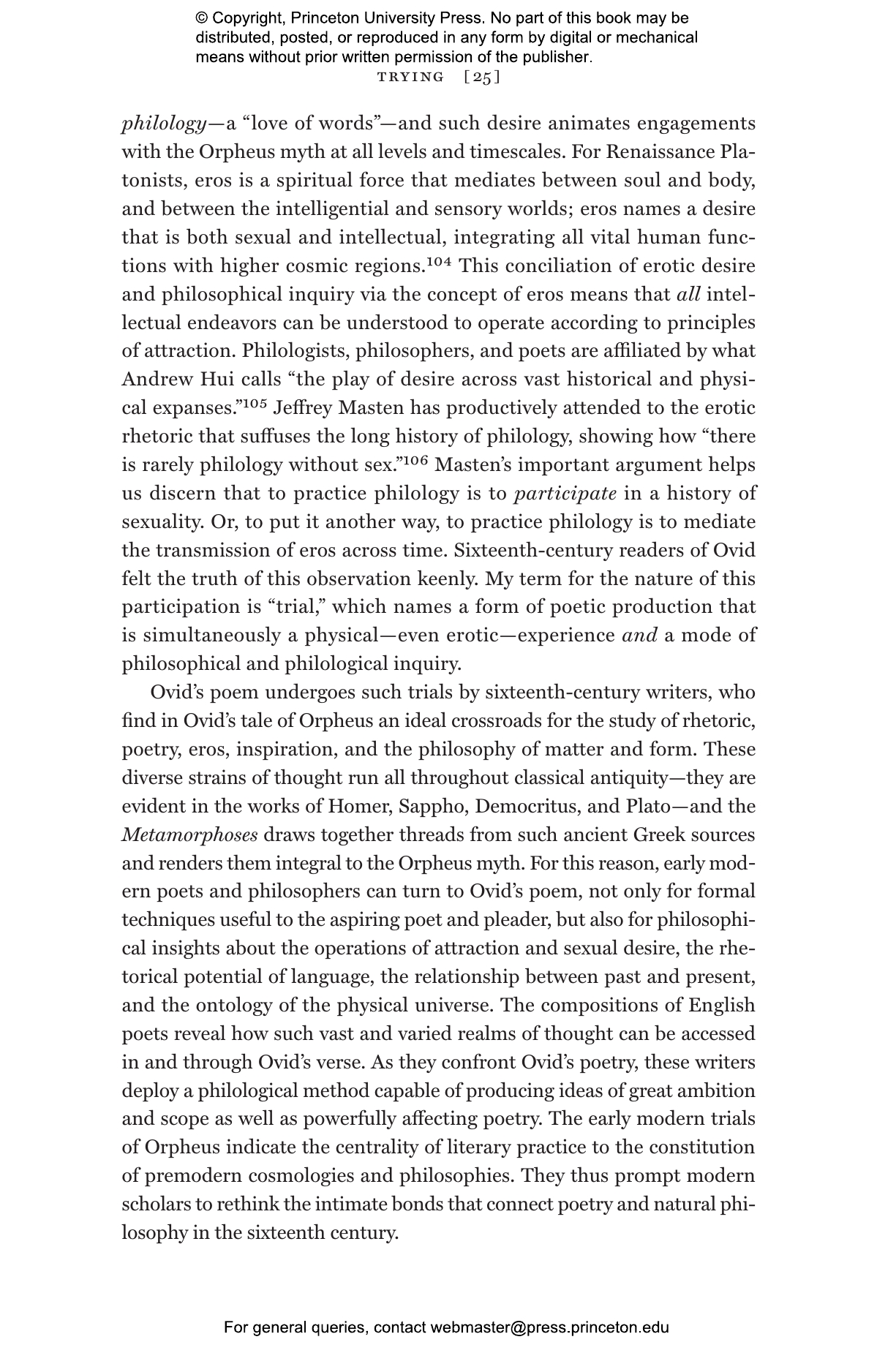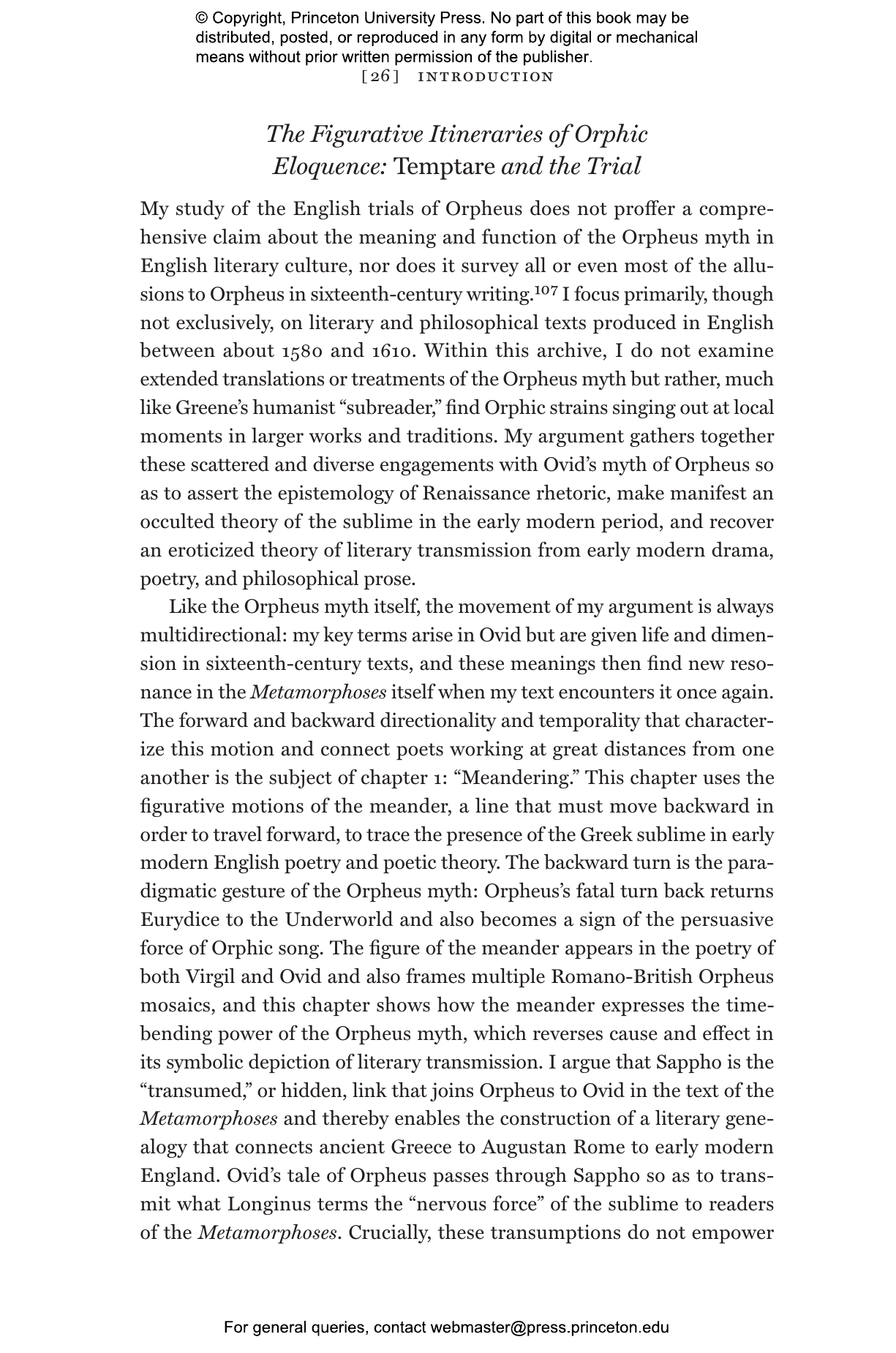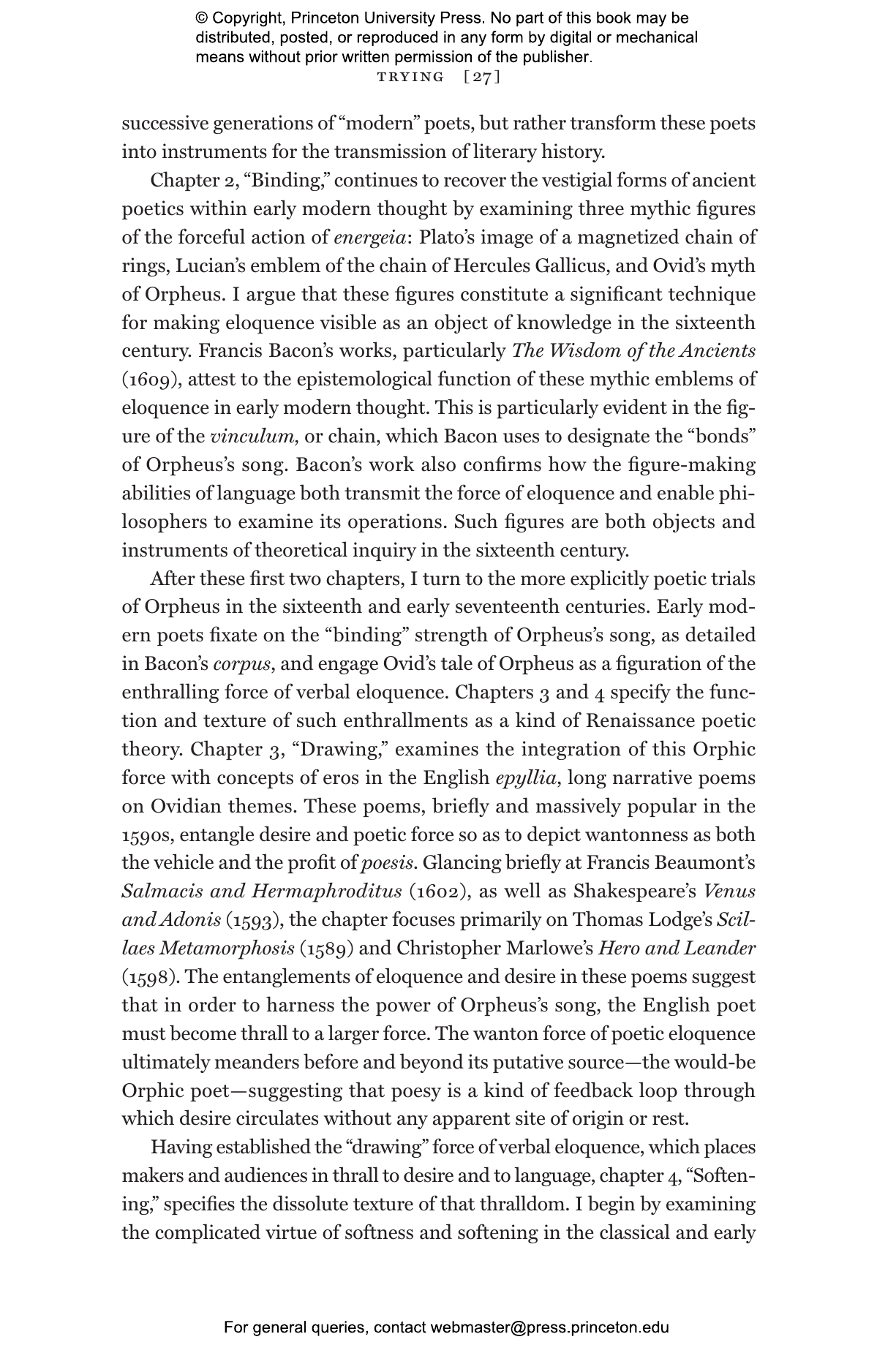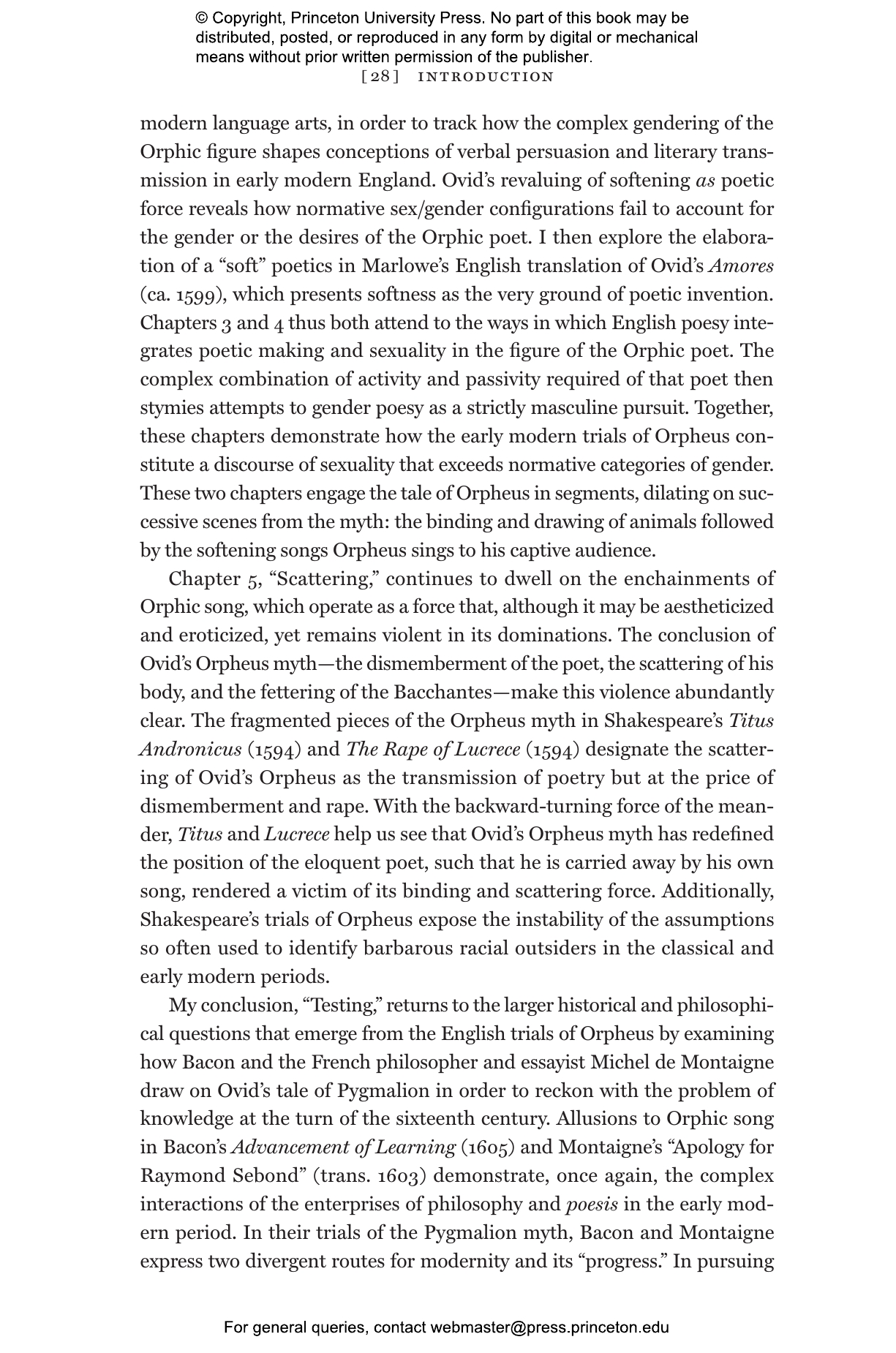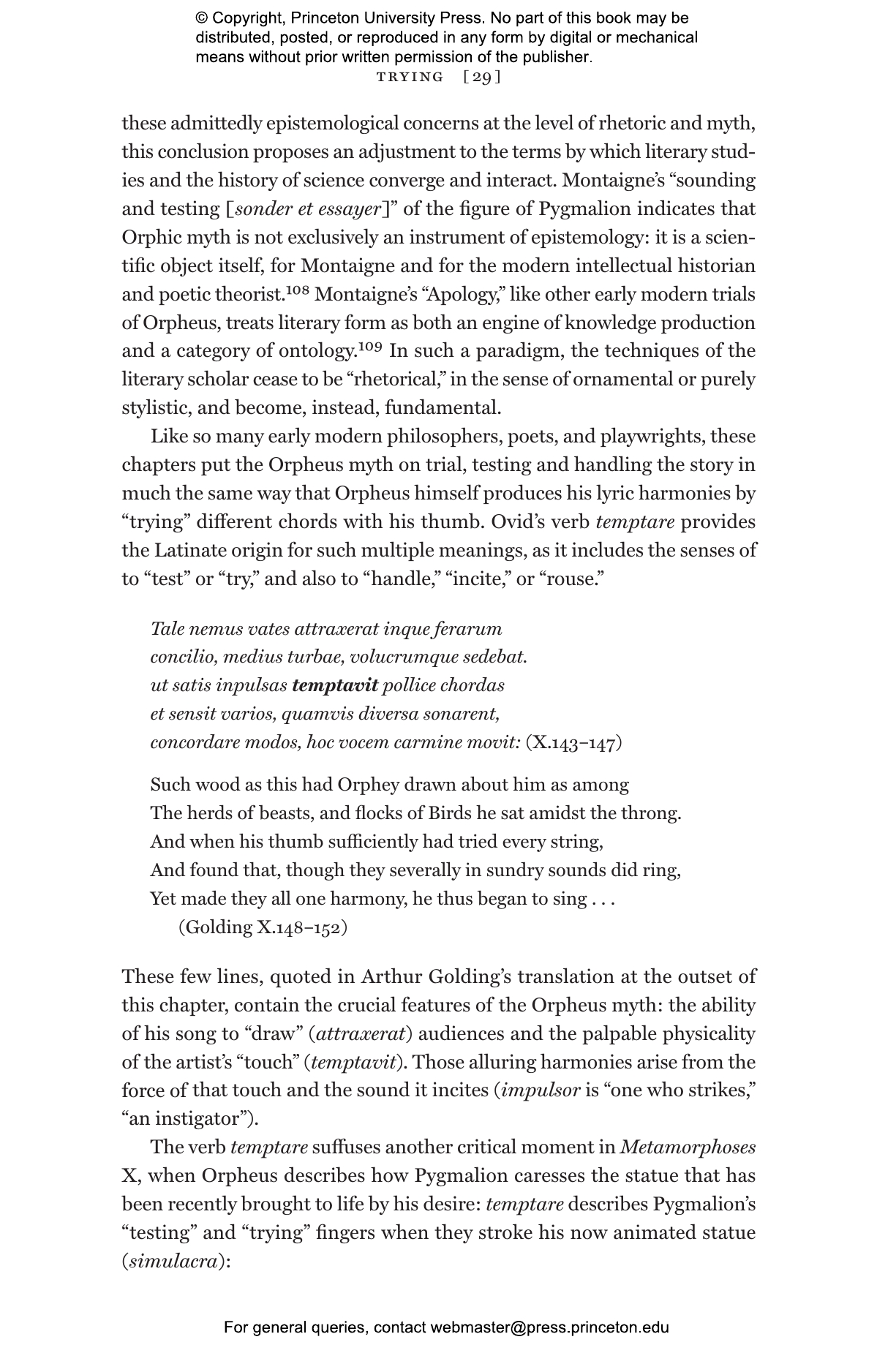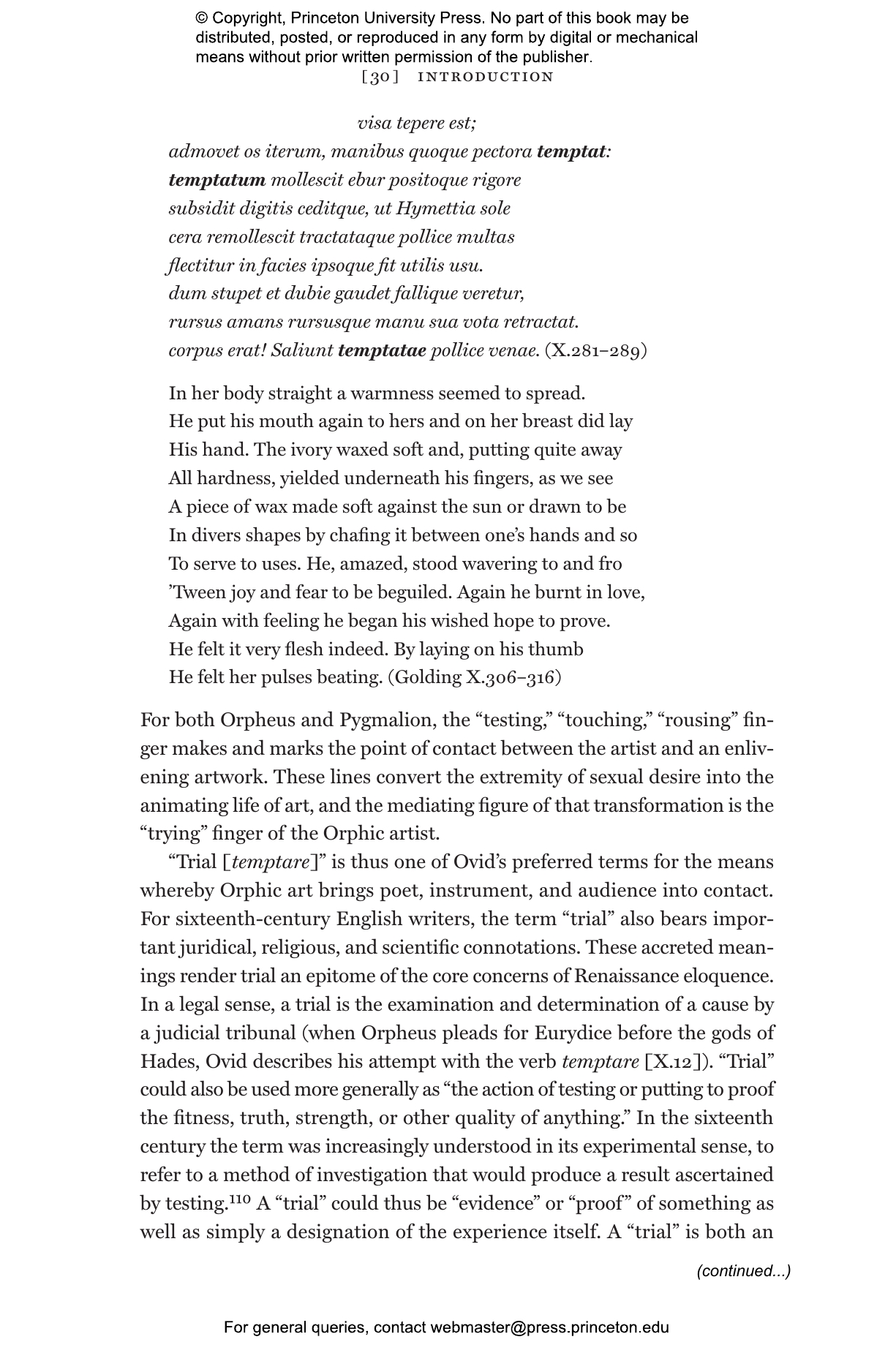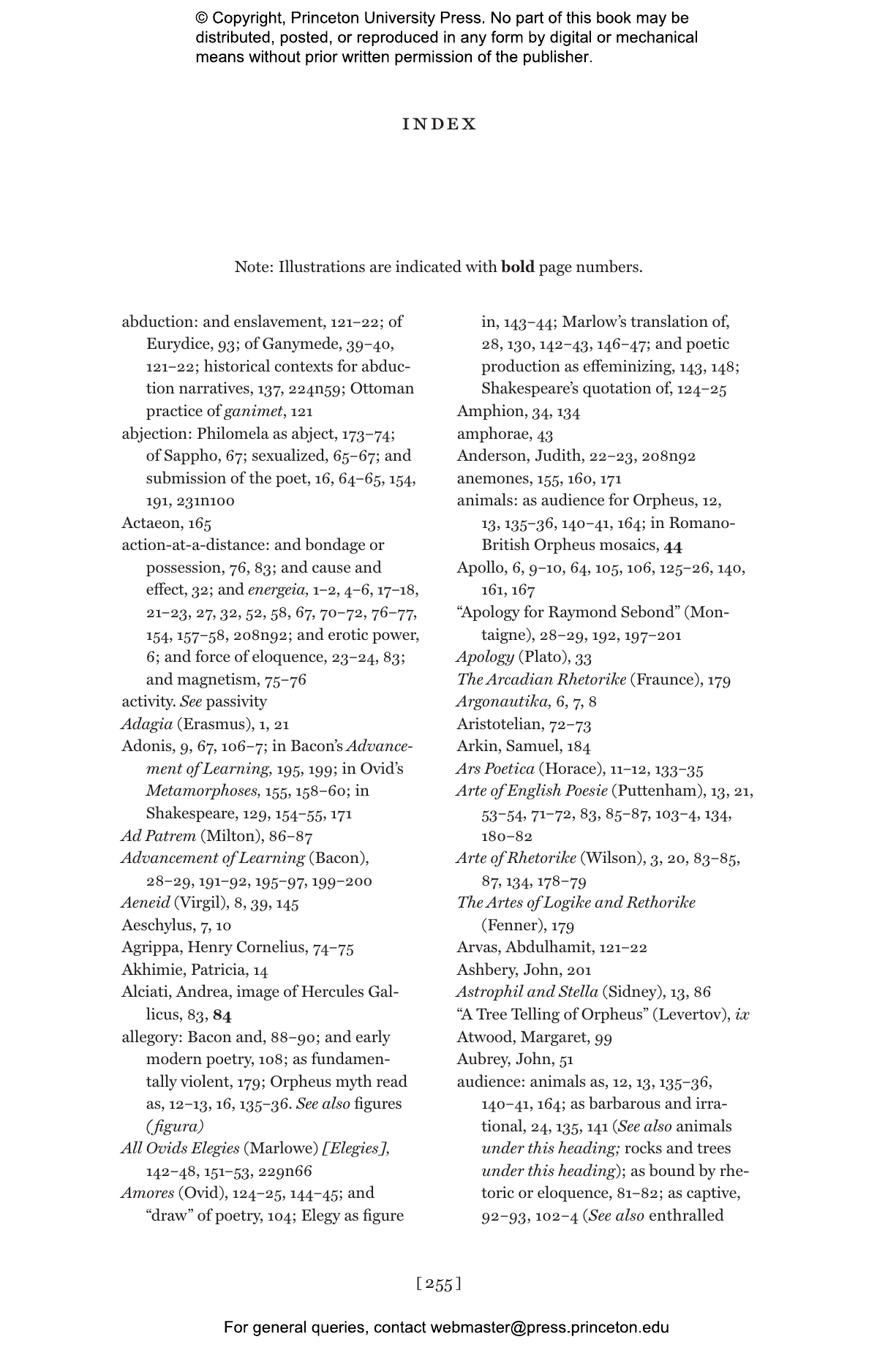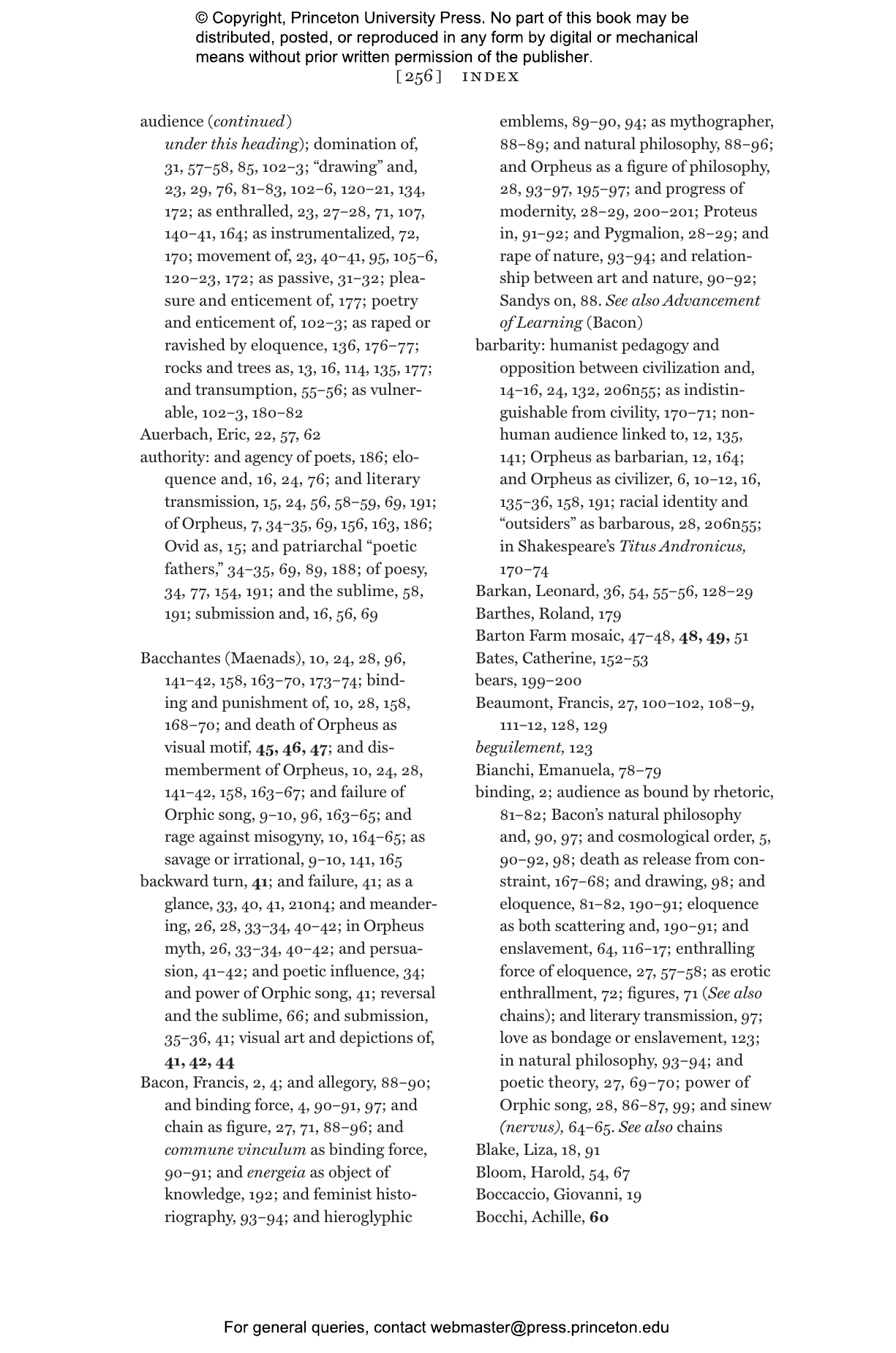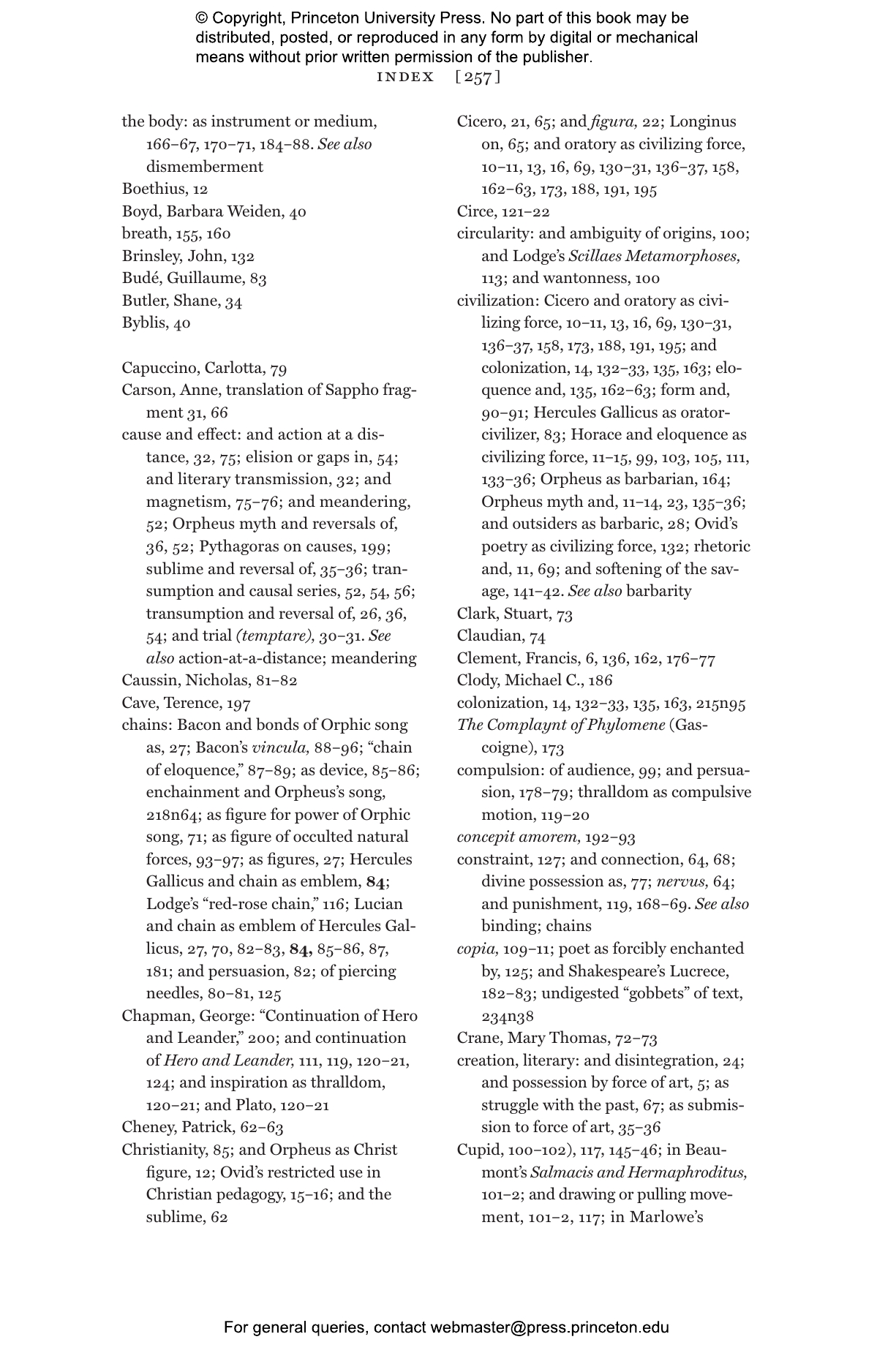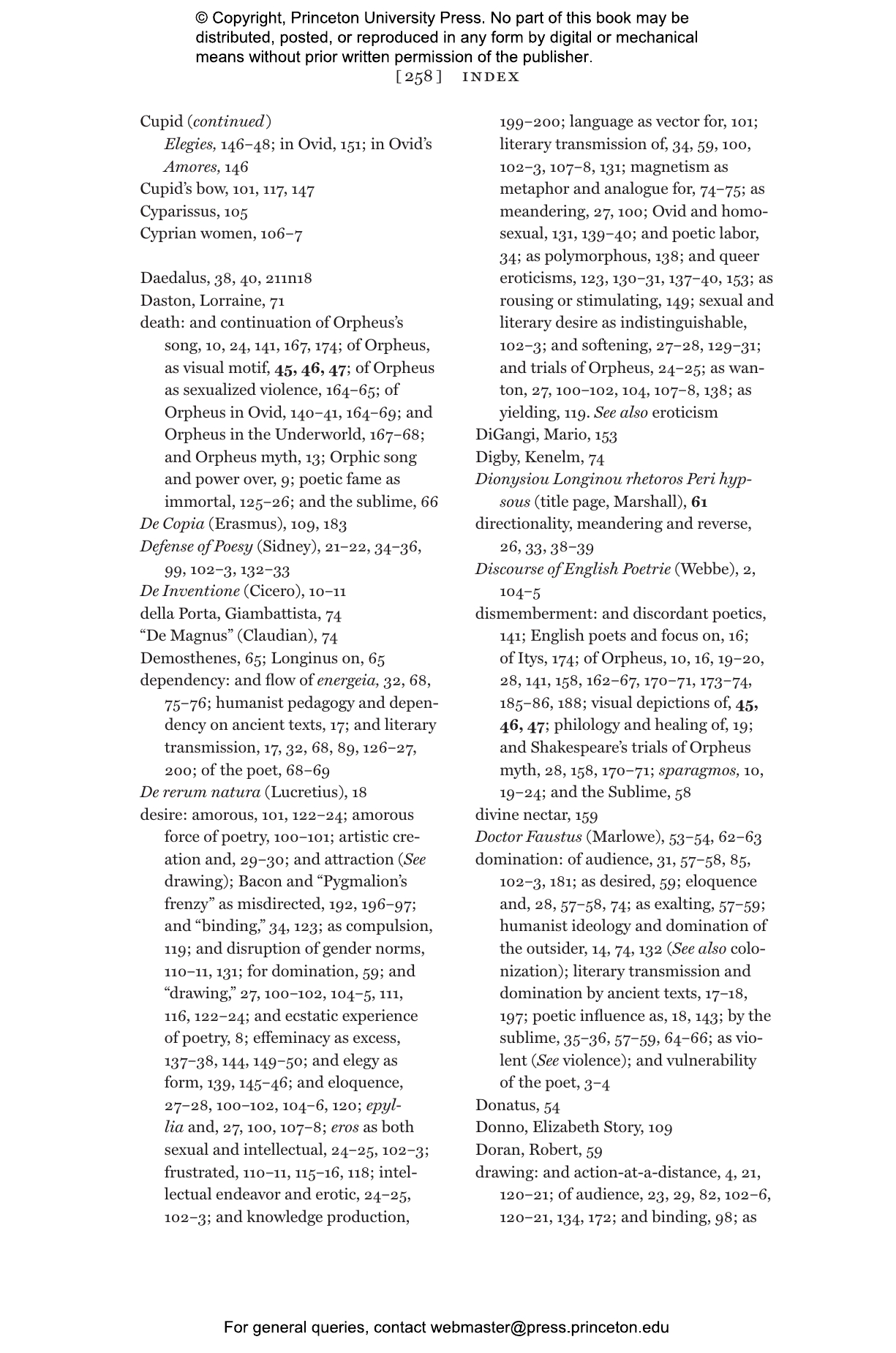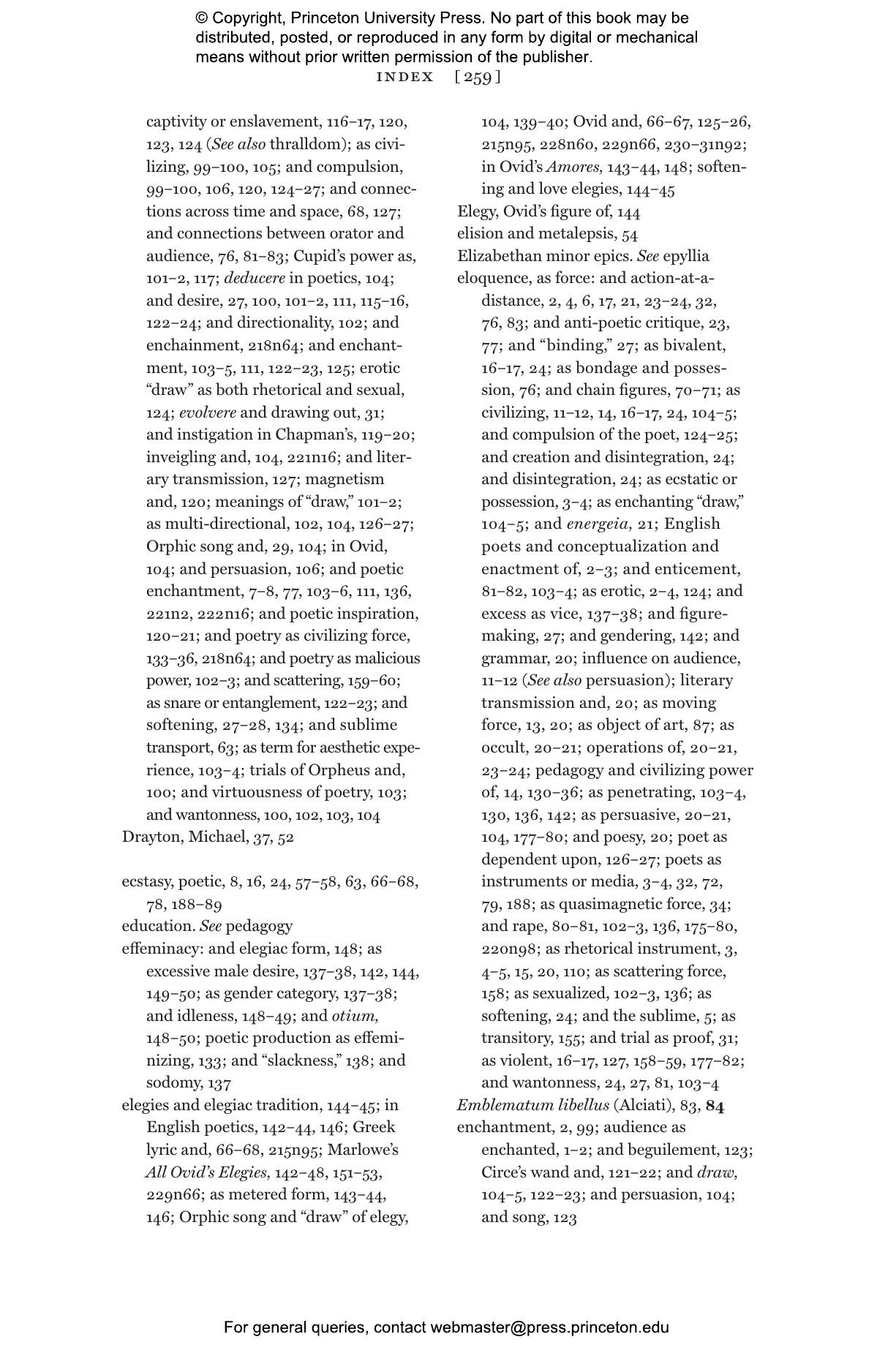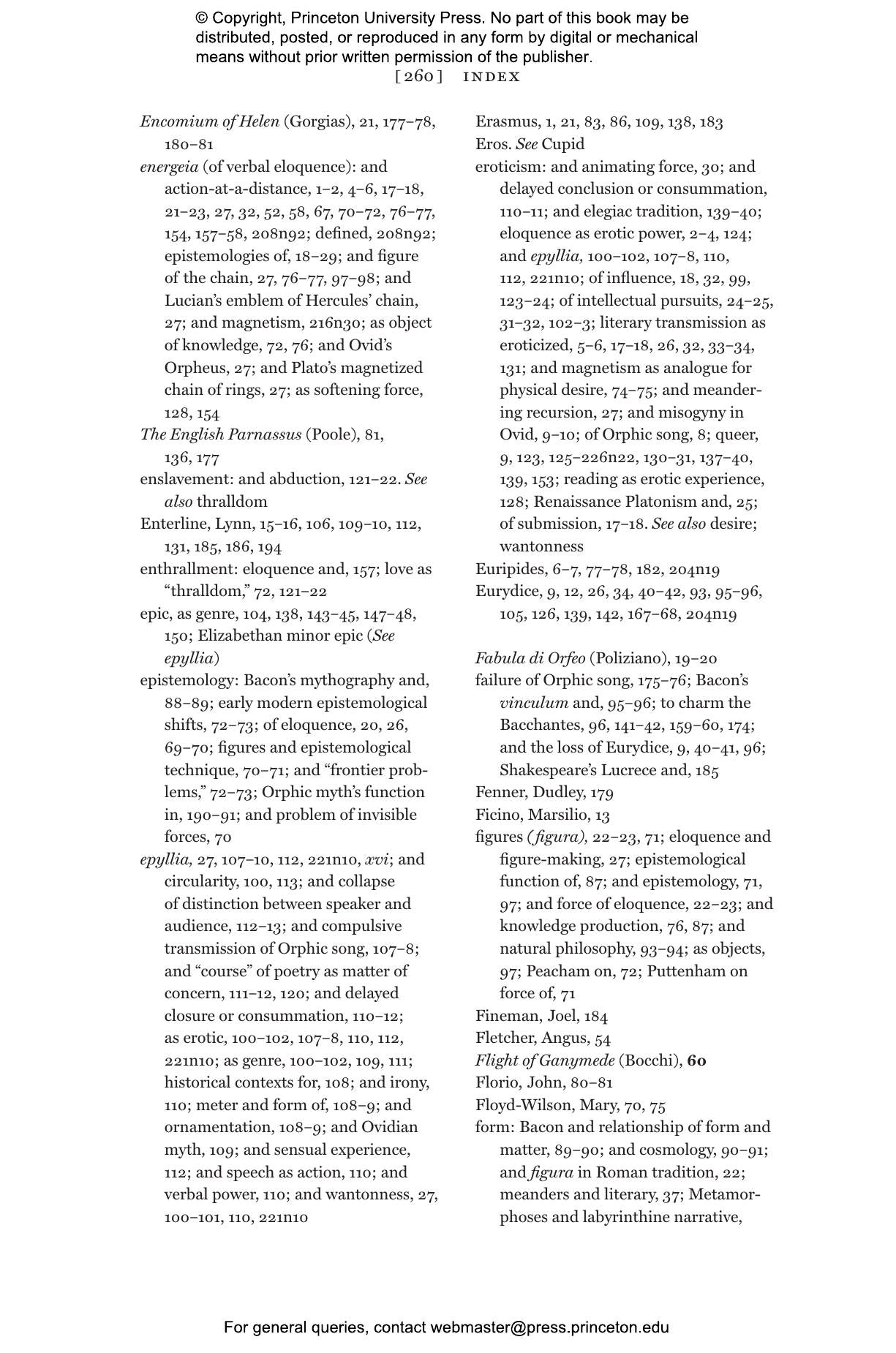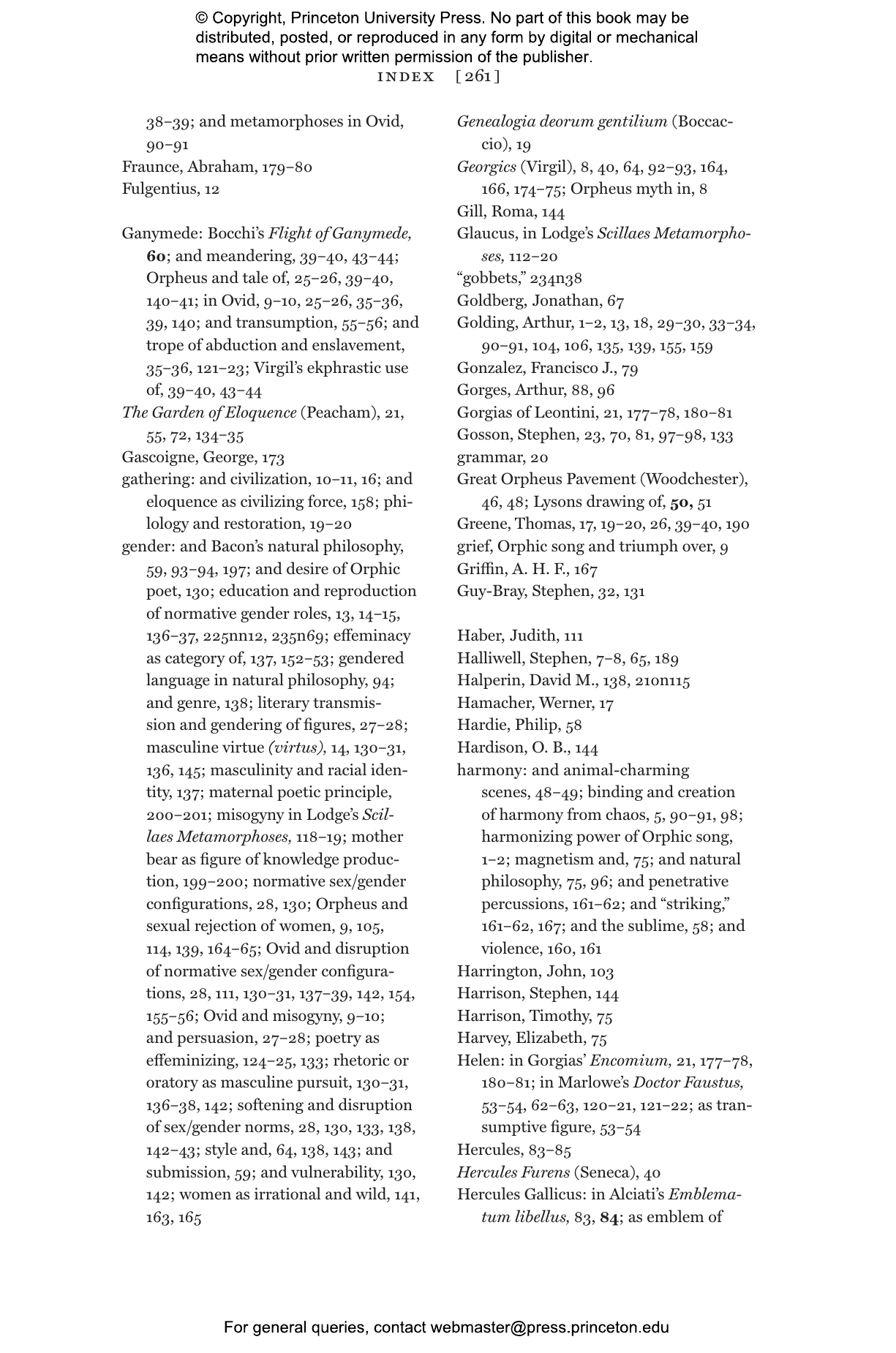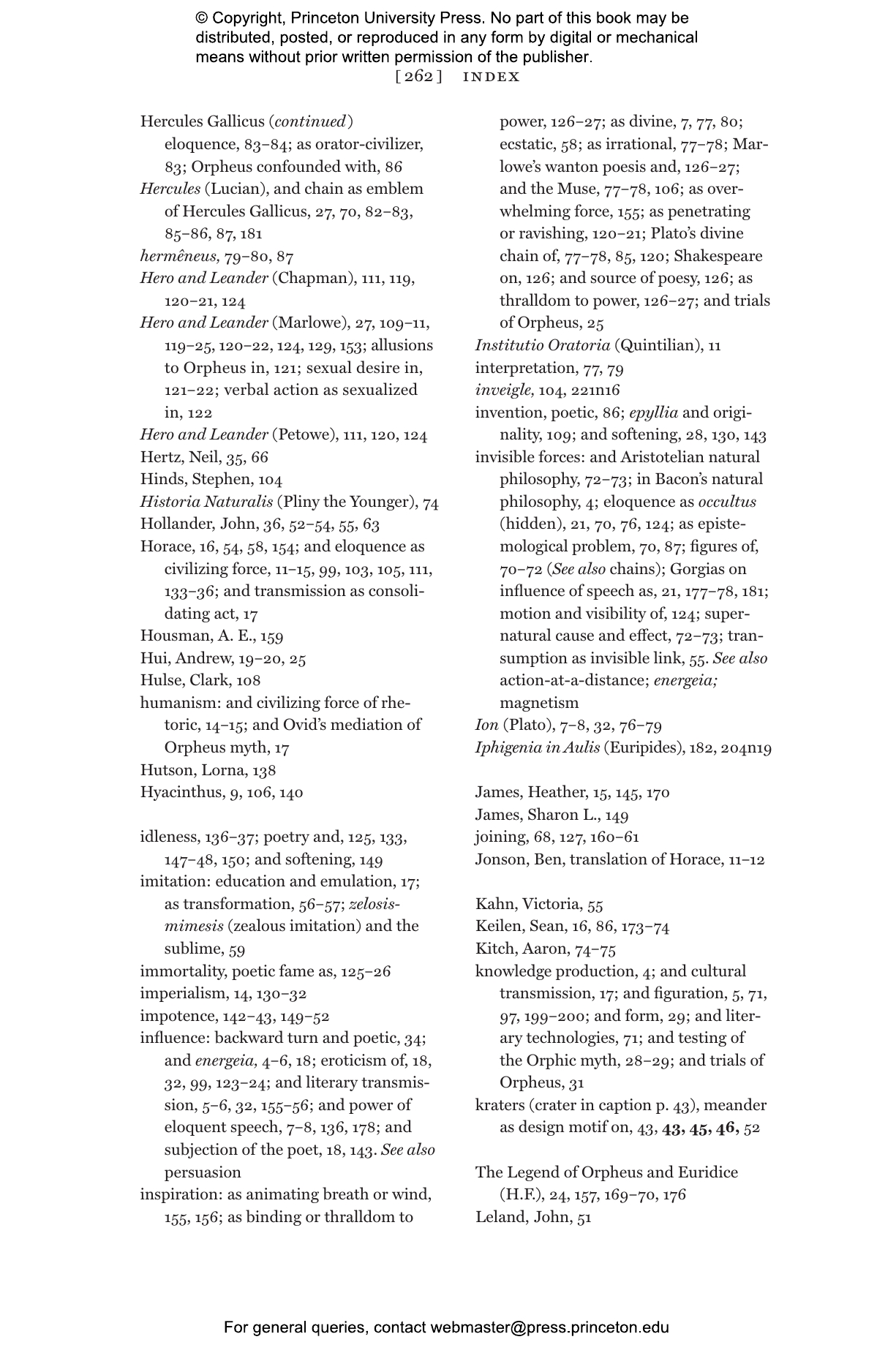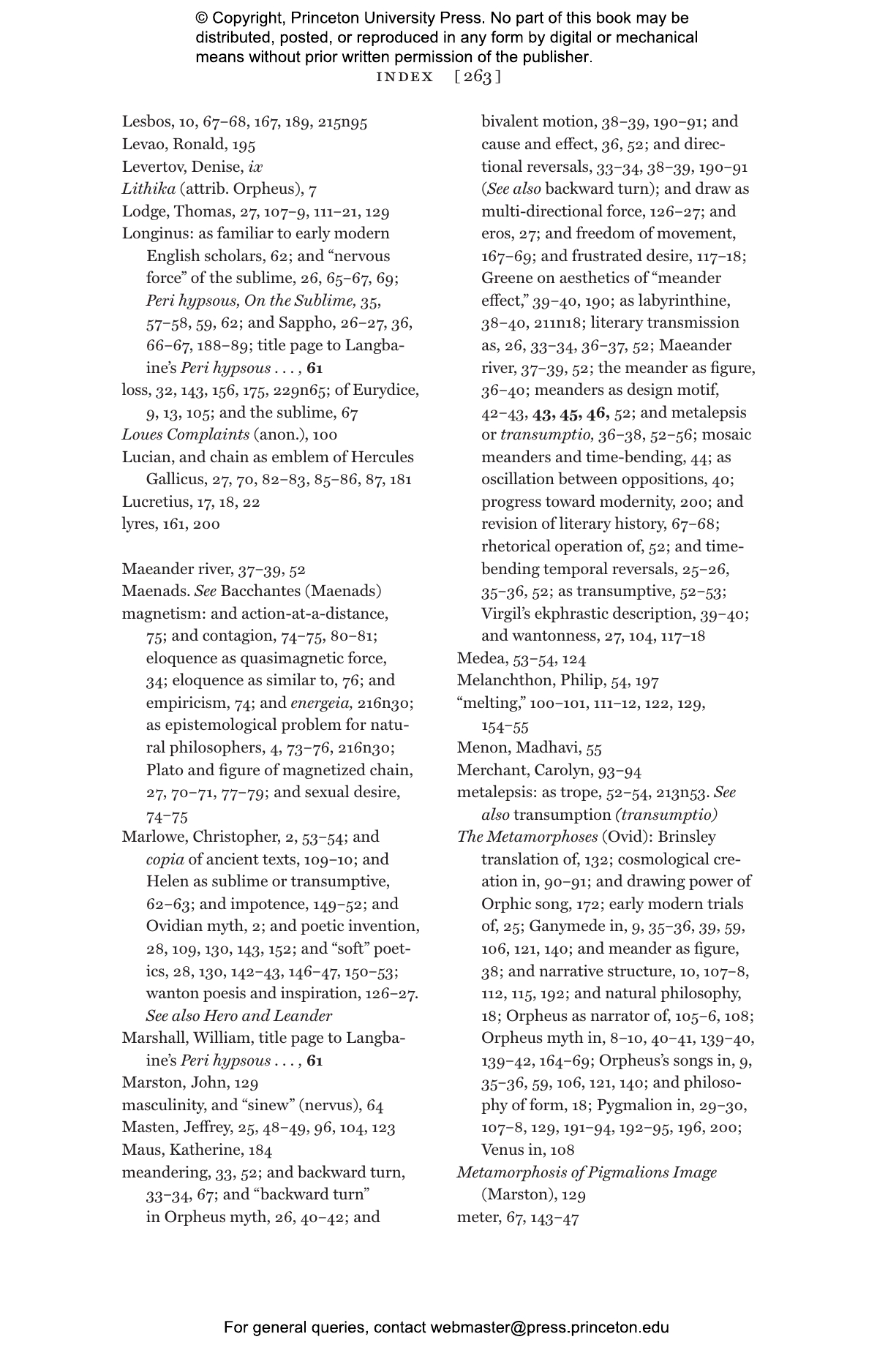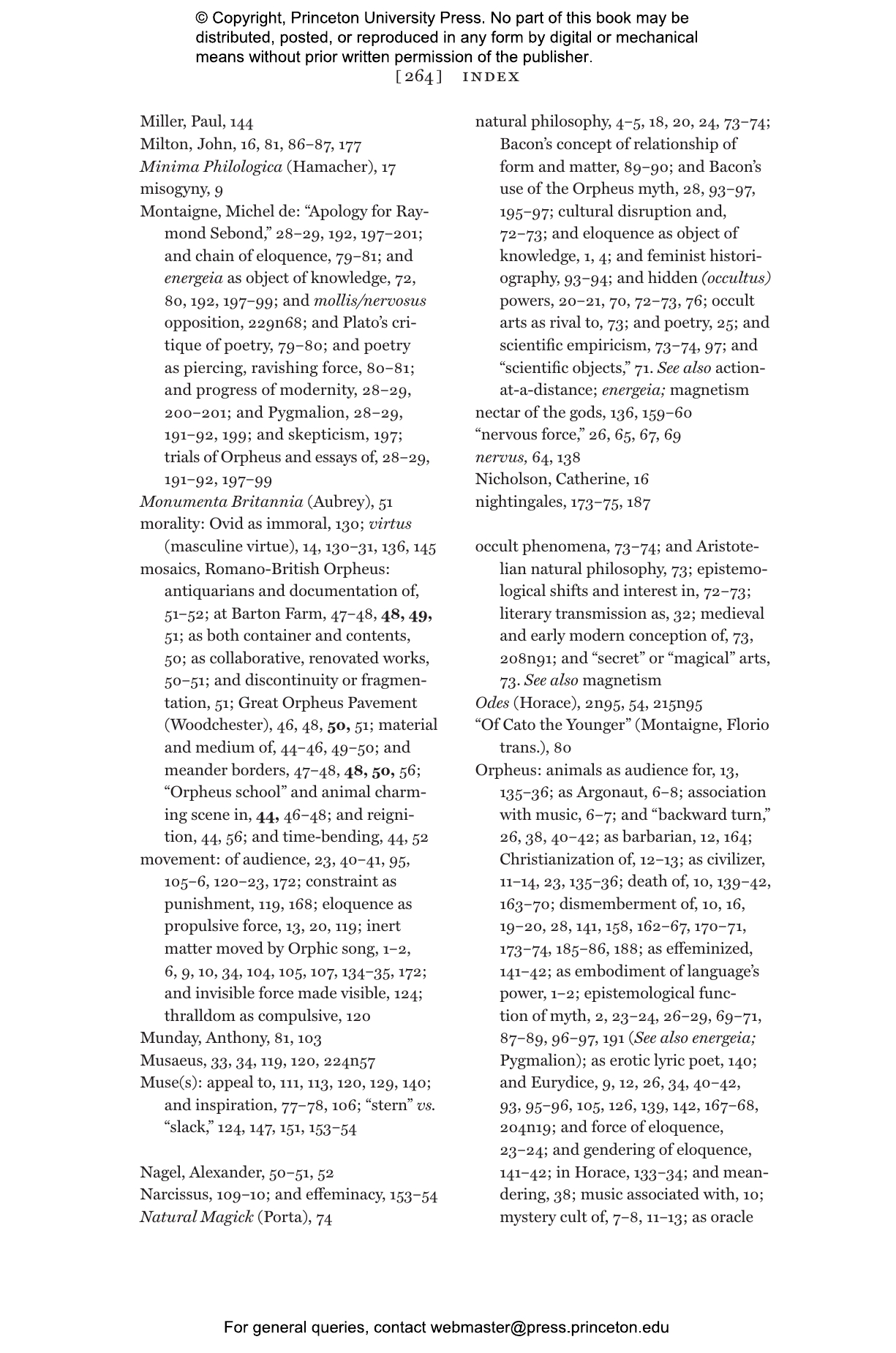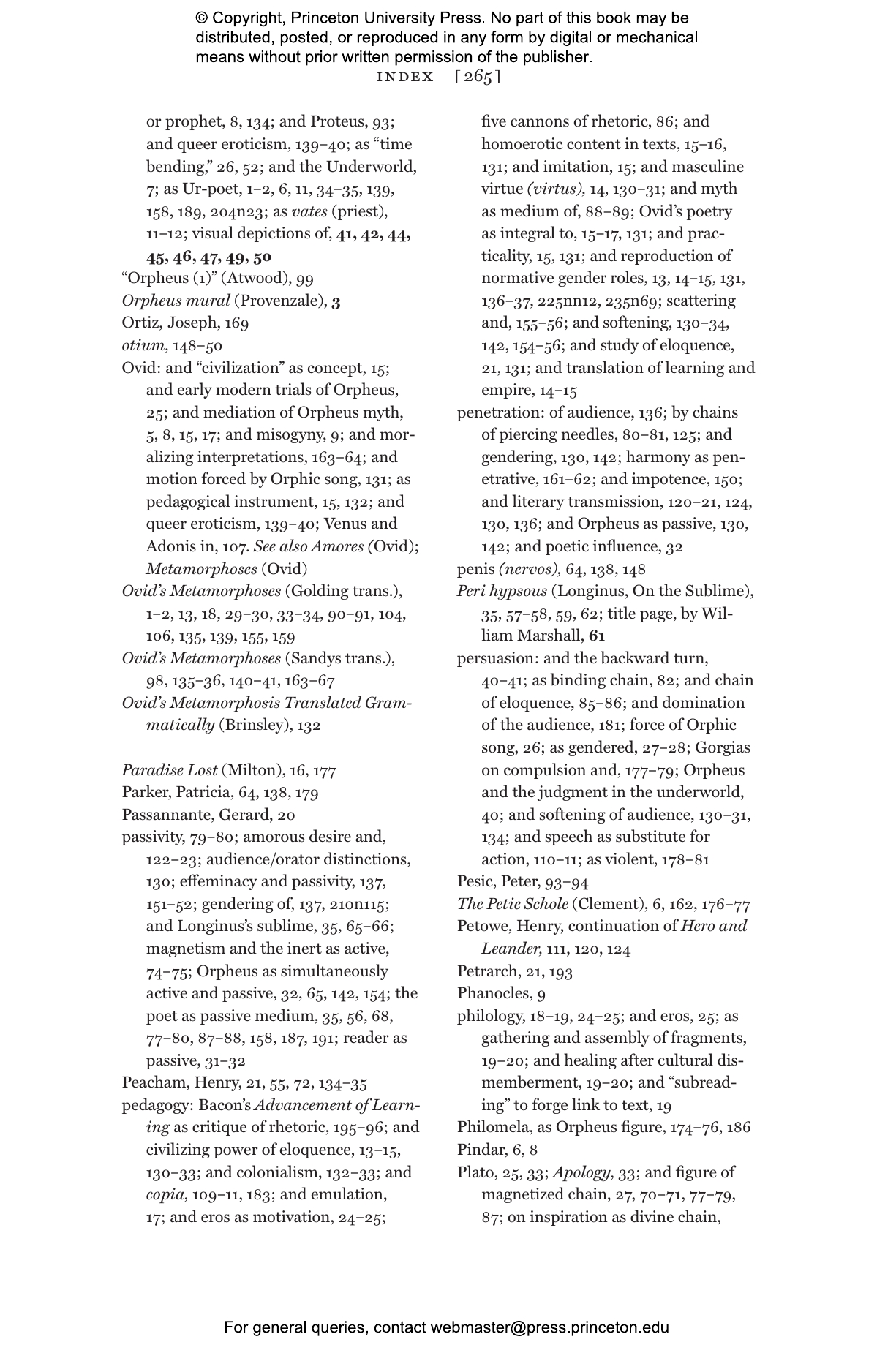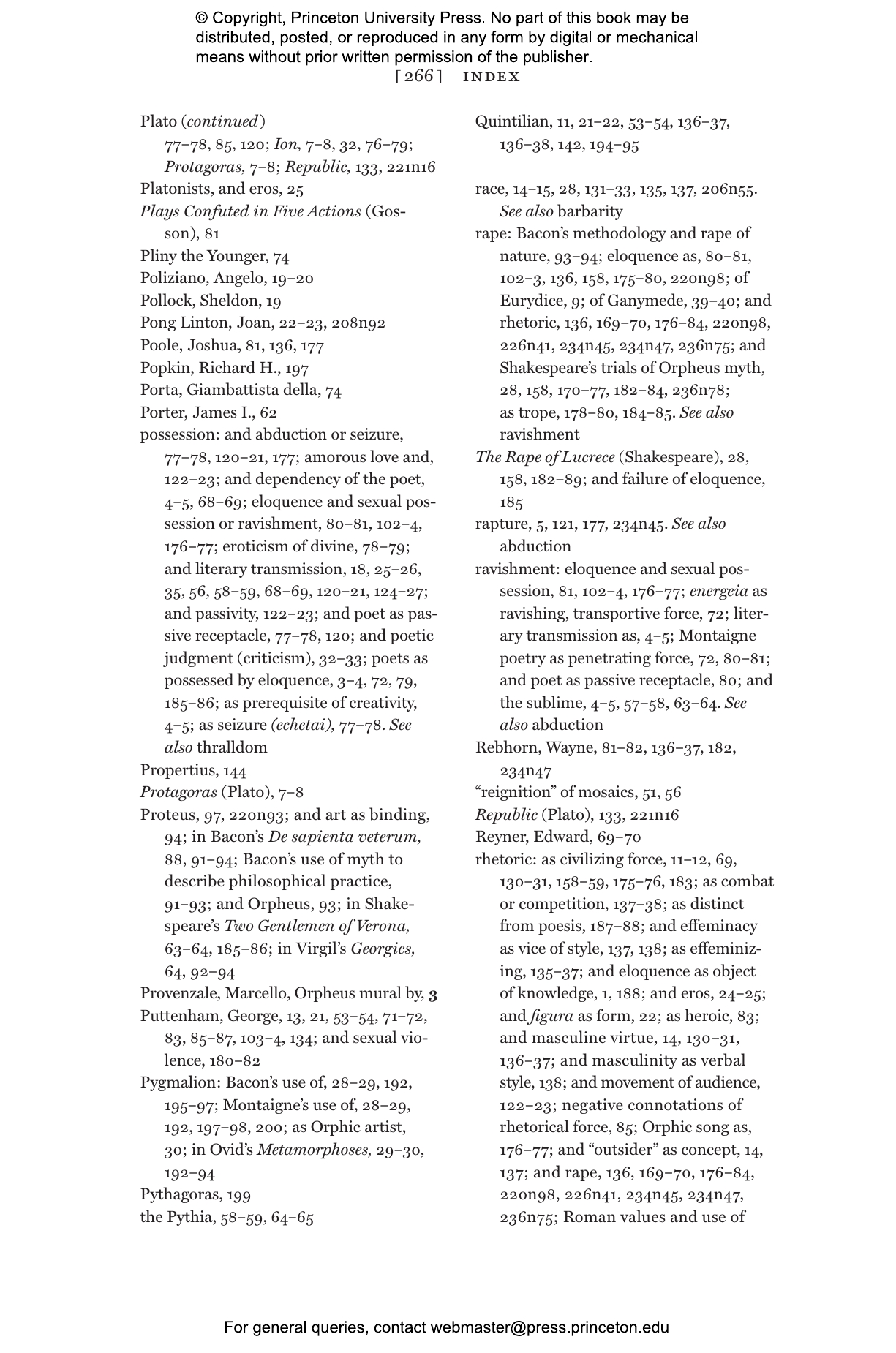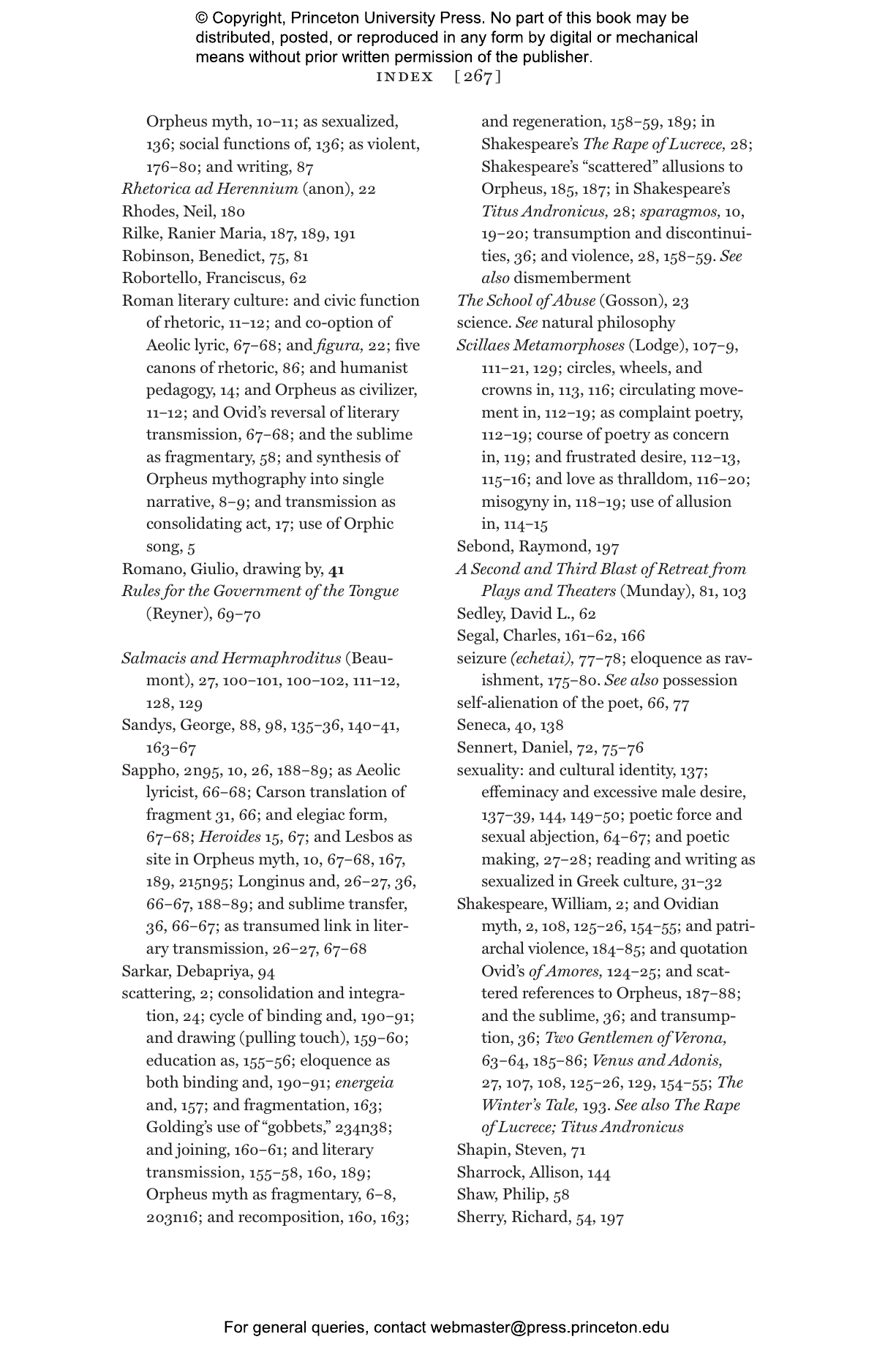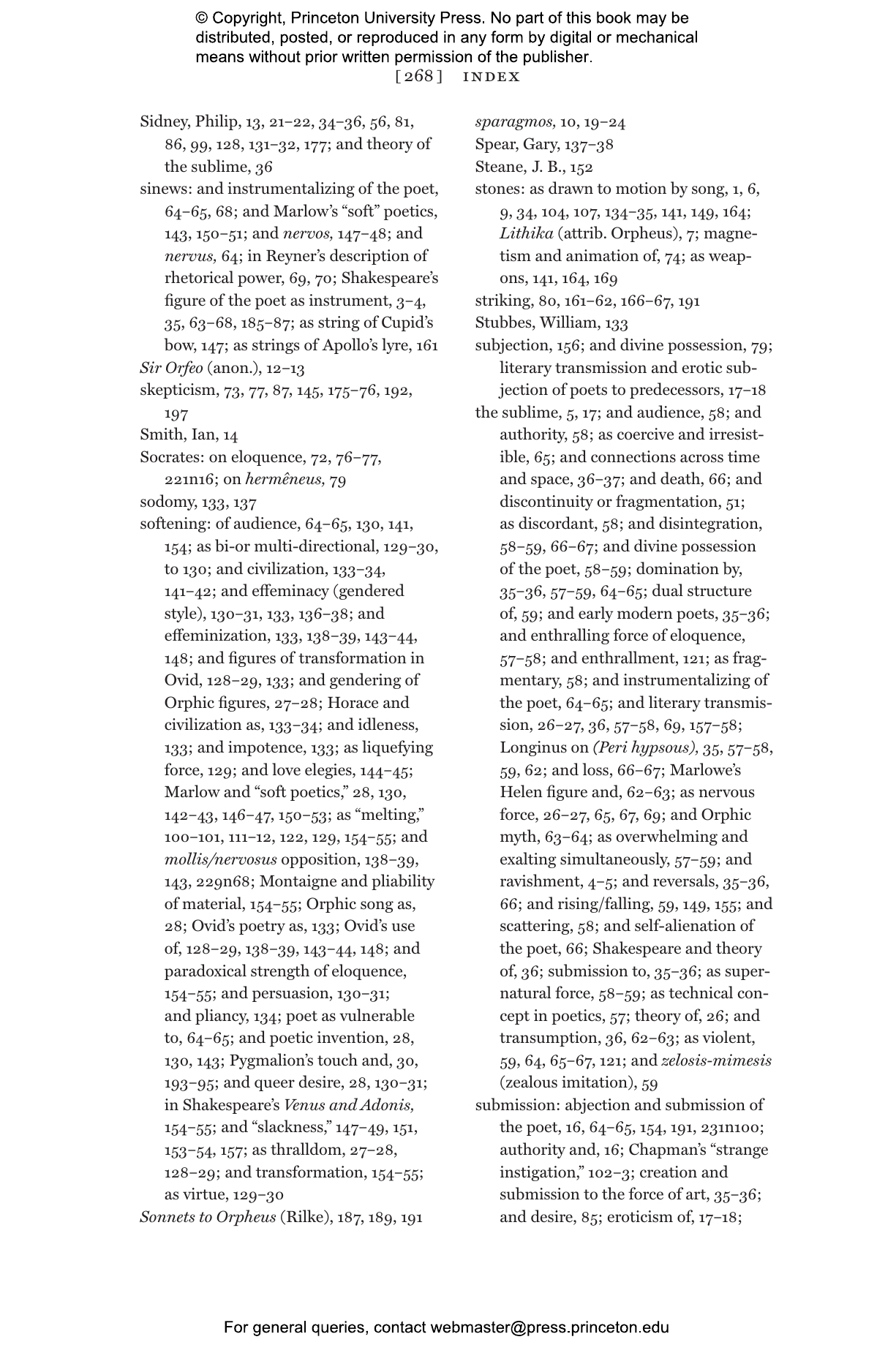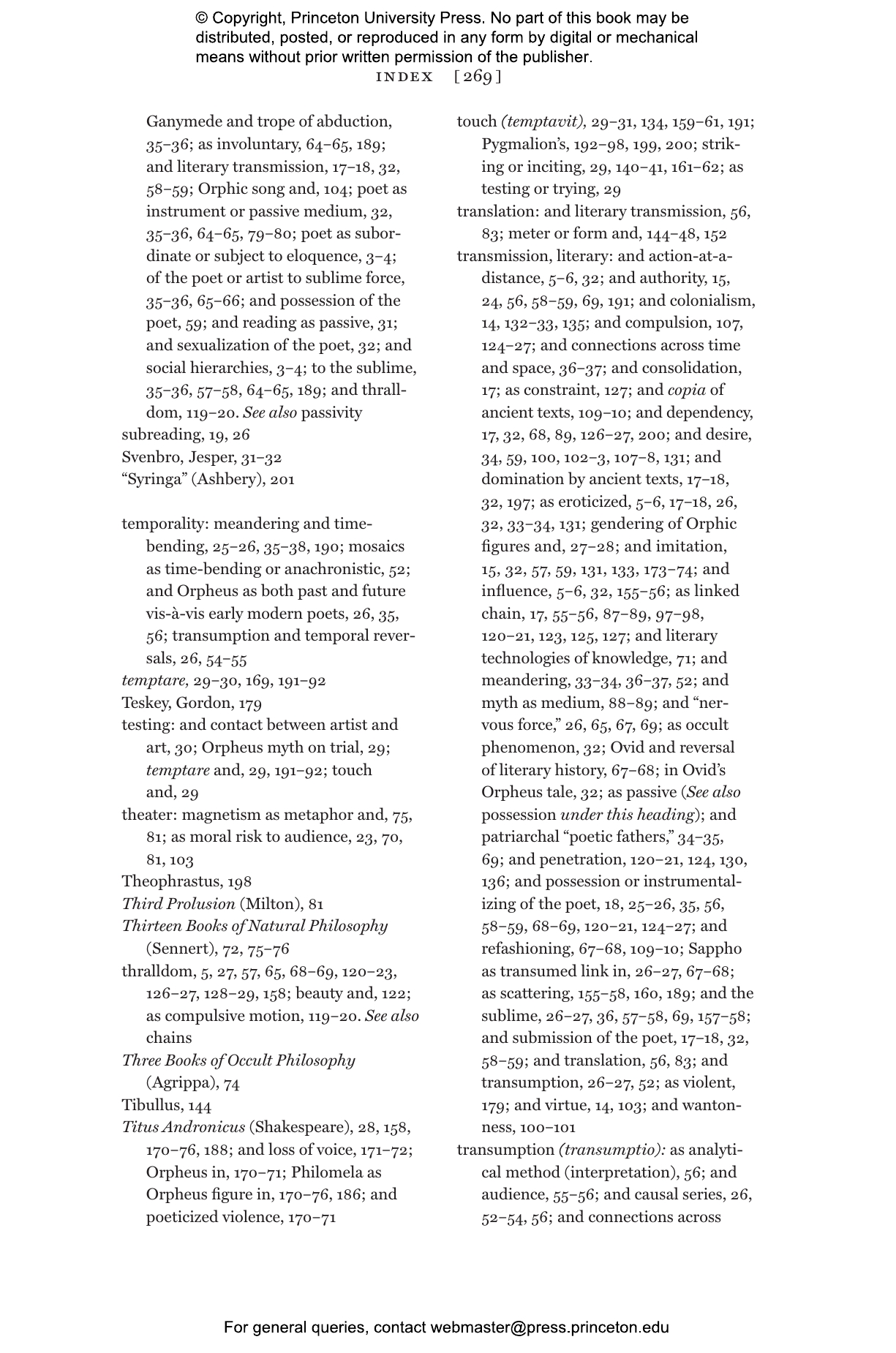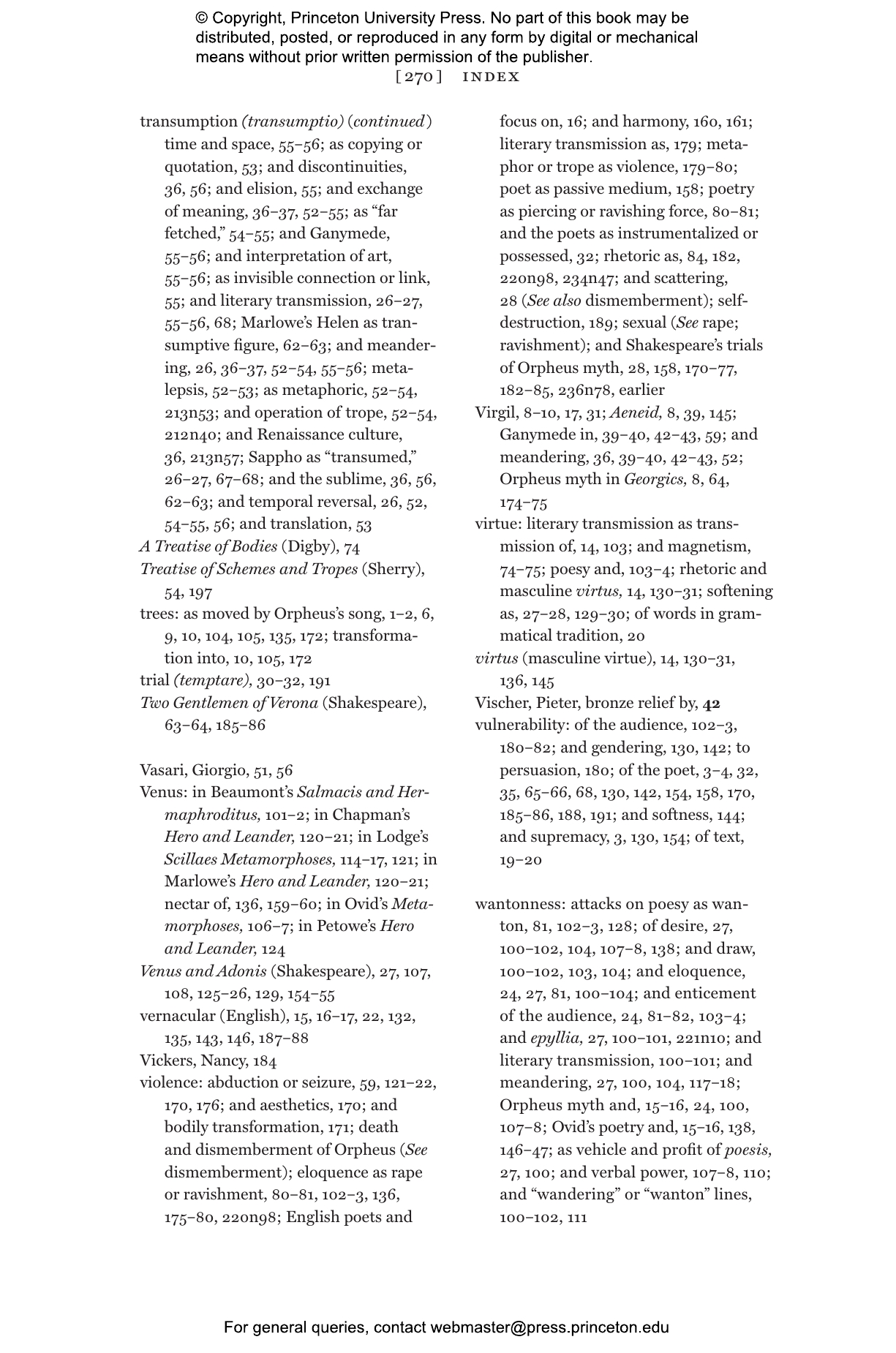In ancient Greek mythology, the lyrical songs of Orpheus charmed the gods, and compelled animals, rocks, and trees to obey his commands. This mythic power inspired Renaissance philosophers and poets as they attempted to discover the hidden powers of verbal eloquence. They wanted to know: How do words produce action? In The Trials of Orpheus, Jenny Mann examines the key role the Orpheus story played in helping early modern writers and thinkers understand the mechanisms of rhetorical force. Mann demonstrates that the forms and figures of ancient poetry indelibly shaped the principles of sixteenth- and seventeenth-century scientific knowledge.
Mann explores how OvidÔÇÖs version of the Orpheus myth gave English poets and natural philosophers the lexicon with which to explain languageÔÇÖs ability to move individuals without physical contact. These writers and thinkers came to see eloquence as an aesthetic force capable of binding, drawing, softening, and scattering audiences. Bringing together a range of examples from drama, poetry, and philosophy by Bacon, Lodge, Marlowe, Montaigne, Shakespeare, and others, Mann demonstrates that the fascination with Orpheus produced some of the most canonical literature of the age.
Delving into the impact of ancient Greek thought and poetry in the early modern era, The Trials of Orpheus sheds light on how the powers of rhetoric became a focus of English thought and literature.
Jenny C. Mann is an associate professor in the Department of English and the Gallatin School at New York University. She is the author of Outlaw Rhetoric: Figuring Vernacular Eloquence in ShakespeareÔÇÖs England. Twitter @jenny_c_mann
"[A] fascinating and erudite book. . . . The Trials of Orpheus will be indispensable for decades to come to early modernists and those in other fields who seek to understand the complexities of classical reception and the uncanniness of poetic creativity from antiquity to the present."ÔÇöBenjamin Parris, Modern Philology
"[The Trials of Orpheus] is sure to draw a wide and enthusiastic readership."ÔÇöAmanda Atkinson, Renaissance Quarterly
"With a palpable love of rhetoric and poetics, extensive learning, and meticulous scholarship, Jenny Mann revivifies a well-known myth in ways that will surprise and inspire scholars of early modern literature. She places the figure of Orpheus at the center of innovative approaches to literary transmission, authorship, and the literary history of the sublime. I read this book with keen interest and admiration."ÔÇöLynn Enterline, Vanderbilt University
"Eloquent and polished, The Trials of Orpheus is a stylistically sophisticated work of criticism. Underscoring how allusions to the Orpheus myth express an early modern understanding of energeia as a physical forceÔÇöable to shape, transform, weaken, and overpower the poet and audienceÔÇöthis admirable book makes a significant contribution to the current fields of scholarship on Ovid, reception theory, gender, and humanism."ÔÇöMary Floyd-Wilson, University of North Carolina
ÔÇťAn evergreen topic in Renaissance literary studies, the Orpheus myth has found its best interpreter in Jenny Mann. I enjoyed every page of The Trials of Orpheus, and will be thinking about its argument for a long time.ÔÇŁÔÇöRoland Greene, Stanford University
This publication has been produced to meet accepted Accessibility standards and contains various accessibility features including concise image descriptions, a table of contents, a page list to navigate to pages corresponding to the print source version, and elements such as headings for structured navigation. Appearance of the text and page layout can be modified according to the capabilities of the reading system.
Accessibility Features
-
WCAG v2.2
-
WCAG level AA
-
Table of contents navigation
-
Single logical reading order
-
Short alternative textual descriptions
-
Print-equivalent page numbering
-
Landmark navigation
-
Index navigation
-
Epub Accessibility Specification 1.1
-
ARIA roles provided
-
All non-decorative content supports reading without sight
-
No known hazards or warnings
